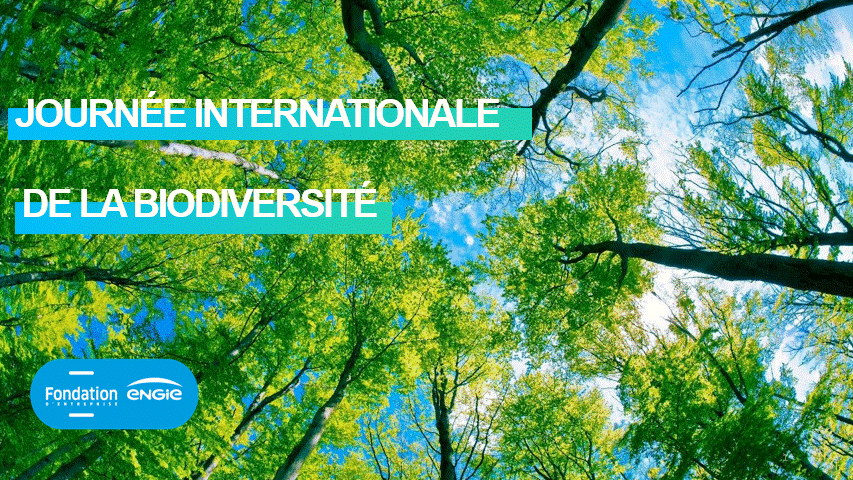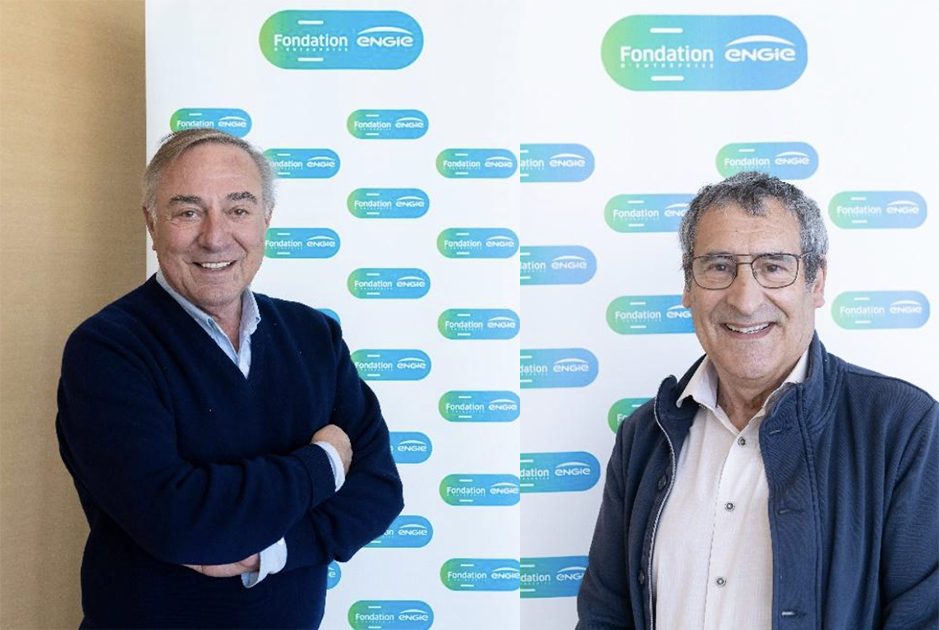International Day of the Girl Child 2024

October 11st is the International Day of the Girl Child, whose theme of this year is “Girls’ Vision for the Future”.
This theme expresses both the need for urgent action and a hope that persists (and the enduring hope that comes from the power of girls’ voices and their vision of the future.). driven by the power of girls’ voices and their vision for the future.
Today’s generation of girls is disproportionately affected by global crises related to climate, conflict, poverty and the rollback of hard-won gains in human rights and gender equality. Too many girls are still denied, restricting their choices and their futures.
Gender equality and women’s empowerment are an integral part of each of the 17 goals. Only by ensuring the rights of women and girls in all goals will we achieve justice and inclusion, economies that work for all, and sustaining our shared environment, now and for future generations.
Some UN figures
- Nearly one in five girls still do not complete lower secondary education and nearly four in ten girls do not complete upper secondary education.
- About 90% of teenage girls and young women do not use the internet in low-income countries, while their male peers are twice as likely to be online.
- Worldwide, girls aged between 5 and 14 spend 160 million more hours each day than boys of the same age on unpaid care and domestic work.
The ENGIE Foundation is convinced that the role and future of girls, future women, are essential to contribute to the achievement of the Sustainable Development Goals.
The ENGIE Foundation pays particular attention to the projects that have an impact on the lives of young girls and that empower gender diversity through:
- Access to education
- fight against gender unfair prejudice
The ENGIE Foundation wants to offer young girls a chance.
Focus on 3 projects
Raising awareness of ecology among young girls in Cambodia with Toutes à l'Ecole

Created in 2005 by journalist Tina Kieffer, the association Toutes à l’école is committed to providing education to 1700 disadvantaged girls in Cambodia.
Its objective: to provide them with a high-level education so that they become free and educated women, capable of transmitting the best to the next generation and playing a useful role for their country in in a world more respectful of environment.
• Every year, 100 new girls aged 5 to 6 from poverty-sticken backgrounds enter the kindergarten of the Happy Chandara campus, in Phnom Penh’s suburb of Prek Thmey.
They will have the opportunity to follow a high-quality school curriculum up to the baccalaureate in Khmer, English and French.
Toutes à l’école then accompanies the young baccalaureate students graduates of Happy Chandara (each year 100% success rate of baccalaureate) in their higher education by hosting them in its two student hostels in Phnom Penh, where they build an independent adult life in a secured environment.
The ENGIE Foundation supports the Green Team, the school’s ecological commitment.

Progressively the more important these Happy Chandara’s green projects become, the need for a team entirely dedicated to their implementation became obvious). This team was gradually formed around an agronomy engineer and a green project manager, quickly joined by two former students of the campus (both graduated of the Royal University of Agriculture of Cambodia) and regularly reinforced by interns from major engineering schools.
In addition to having become the campus innovation laboratory, this team is leading a professional integration project : the gardeners are fathers from the village community.
All of these driving forces enabled the Happy Chandara campus to receive to be awarded an eco-certification from the Cambodian Ministry of Environment in November 2023. This distinction is based on 15 strict environmental criteria (use of green energy, ecological materials, etc.) that the Green Team has succeeded in perpetuating in the daily life of the campus.
In parallel with the creation of a responsible campus, the Green Team is also in charge of the development of an agroecology to supply the school’s canteens. This agroecology has educational applications based on innovative production projects
Workshops to raise awareness of the ecological transition

The objective: to raise the awareness of the 1,300 students and the community.
The Ouverture Sur le Monde courses allow students to explore current global issues with 400 hours of permaculture classes for all grade levels to teach students about pesticide-free farming and Climate Fresco workshops now mandatory for all campus staff.
Green Community Project
The aim is to encourage sustainable practices and strengthen everyone’s commitment to protecting our planet.
• Waste sorting course to learn good practices regarding recycling.
• Exchanges of food baskets for bags of plastic waste brought back by the students’ families.
• Educational tour of the Gomi recycling plant, near Phnom Penh, to better understand the recycling process.
• Organized an awareness day on campus, with the aim of eliminating single-use plastics and promoting the 5 “Rs”: Reduce, Reuse, Recycle, Refuse and Give Back to the Earth.
This day was enriched by various activities:
• a waste collection in partnership with the NGO One Earth One Ocean;
• a workshop led by Gomi Recycle and the NGO Only One Planet;
• Educational games to raise awareness of the negative impacts of plastics on the environment.
Tola CHHORN, student at the Ecole des Mines

The ENGIE Foundation has enabled Tola CHHORN to keep studying in France thanks to a scholarship.
After being graduated top of her third year at the Cambodia Institute of Technology, Tola CHHORN started his Master 2 at the Ecole des Mines d’Alès in September 2023.
Thola has integrated very well and is continuing her studies to become a mining engineer.
She is housed in the Students’ House, which allowed her to meet people and evolve in an enriching and safe working environment.
Tola has validated her 2 semesters with very good results and she is currently doing an internship in a geotechnical design office as an assistant engineer
Discover Tola’s portrait
Energy to Strengthen the Education of 600 Girls at Likuni Girls' Secondary School, Malawi

ENGIE employees volunteering from ENERGY ASSISTANCE Belgium have helped to improve the educational landscape of 600 girls at the Girls’ Secondary School in Likuni, Malawi, through the installation of solar panels and batteries.
Malawi faces frequent power outages that disrupt the learning process. Solar energy is a reliable source of energy that not only lights classrooms, but also contributes to the well-being of our planet.

Lighting the way to education:
The Likuni Girls’ Secondary School, a boarding school near Lilongwe, is home to 600 girls. The solar system not only makes it possible to light classrooms after dark (around 5 p.m. due to the latitude), but also to power 30 computers, thus providing access to modern teaching tools. We strongly believe that every girl deserves a chance at a bright future, and that access to education is key.
Although the school is connected to the local grid (ESCOM), persistent power outages led to the installation of 22 photovoltaic panels and 4 lithium batteries as a backup. The panels were placed on the roof of the school building, a restored technical room now houses the solar control equipment, electrical boxes and batteries. The solar system (nearly 10kWp with a storage capacity of 19.2kWh) ensures a continuous power supply in the classrooms, the computer room and in the administrative block during outages.

Towards sustainability and ecological friendliness:
Beyond the classrooms and the administrative block, the dormitories, the kitchens, etc. are still not connected. A feasibility study is underway to supply the kitchen with biogas. This would make it possible to prepare daily meals without the need for electricity or firewood, and to provide biofertilizer for the vegetable garden, thus offering an environmentally friendly solution. This approach aims to fight against deforestation and improve the self-sufficiency of the school.
Promoting biodiversity for a sustainable future:
Beyond the classrooms and the administrative block, the dormitories, the kitchens, etc. are still not connected. A feasibility study is underway to supply the kitchen with biogas. This would make it possible to prepare daily meals without the need for electricity or firewood, and to provide biofertilizer for the vegetable garden, thus offering an environmentally a respectful solution to environment. This approach aims to fight against deforestation and improve the self-sufficiency of the school.
Leadership for young college girls in South Africa with Valued Citizen

For 20 years, the ENGIE Foundation has been one of the long-standing partners of the NGO Valued Ctizens Initiative.
Valued Citizens is an association that aims to inspire individuals to become responsible citizens, determined to lead their lives by engaging in democracy and the South African economy.
Since 2009, the ENGIE Foundation has been supporting the NGO on the iNSIRE program.This iNSPIRE program purposes to address the problem of gender inequality and poverty in communities by developing and challenging girls’ perception of themselves, promoting their emotional well-being and helping them become young leaders in their communities by becoming the positive role models that young people expect.

Impact 2023: 171 “Valued Citizens” adolescent girls followed the Leadership trainings and set up their real, medium-scale citizen project within their school community, which had a direct impact on 3197 students involved in the realization of their project and an indirect impact on 9414 middle-school students.
International Day for Biological Diversity: the ENGIE Foundation, a committed player

Every year on May 22, the UN marks the International Day for Biological Diversity: an opportunity to highlight the crucial importance of biodiversity for our planet and to raise awareness of the urgent need to preserve it.
For the ENGIE Corporate Foundation, it’s an opportunity to recall its commitment, its concrete actions and its convictions, to showcase its partners and to mobilize ENGIE employees.
More than 30 years ago, in 1992, our Corporate Foundation was created to carry out two major environmental actions: the safeguarding of two major natural sites, the Gavarnie cirque (Pyrenees) and the Pointe du Raz. Biodiversity is more than ever at the heart of the Foundation’s actions and programs for this 7th mandate 2020 2025, and of its two main “Planet for people” focuses.
A necessary awareness
30 years ago, awareness was raised of the fragility of the living world around us. The United Nations General Assembly then adopted the text of the Convention on Biological Diversity, with the aim of conserving diversity, ensuring the sustainable use of its components and genetic resources, and sharing the benefits arising therefrom in a fair and equitable way.
Gilles Bœuf – ENGIE Foundation company administrator – “Biodiversity is the living fraction of nature in all its complexity”…. ” We are witnessing a steady deterioration in the situation: the collapse in the number of living individuals in wild natural populations is a major scientific fact. In 18 years, we have lost 30% of birds in certain agricultural areas.”

Gilles Bœuf – is a specialist in environmental physiology and biodiversity. He was President of the Muséum d’Histoire Naturelle from 2009 to 2015, and scientific advisor during COP21. A professor at Sorbonne University, he chairs the Massane National Nature Reserve in the Pyrenees.
For Allain Bougrain Dubourg – ENGIE Foundation company administrator: “The realization is here. We are all clear about the situation: the living world around us is dying! We must act to halt the decline in biodiversity. We must all take action to reverse the trend: scientists, members of associations or simple “eco-citizens”.

Allain Bougrain Dubourg is a journalist and producer of television and radio programs on nature. He is a director of the National Museum of Natural History, Chairman of the Strategic Orientation Committee of the Foundation for Research on Biodiversity and has been Chairman of the LPO for over 35 years.
For the Foundation, a shared conviction:
« Biodiversity must be treated on an equal footing with climate change. They are both intimately linked. »

Julia Maris – ENGIE Foundation company administrator
ENGIE Chief Sustainability Officer
Mobilize us all
Be part of the plan: the theme of World Biodiversity Day 2024!
The theme of World Biodiversity Day 2024 is “Be part of the plan”, a call to action for all stakeholders, for everyone, to stop and reverse biodiversity loss.
PLANET FOR PEOPLE with the ENGIE Foundation, act for the preservation of biodiversity in France and internationally in order to :
- Better understand and explore the wealth of biodiversity
- Protect biodiversity and ecosystems
- Educate and raise awareness of biodiversity preservation
With 49% of its projects dedicated to access to renewable and sustainable energies and to biodiversity in 2024, the ENGIE Foundation is committed to the environment year after year. The aim is to take part in ambitious, high-impact projects and contribute to the collective effort of the Agenda 2030 through the achievement of the Sustainable Development Goals (SDGs).
The ENGIE Foundation’s action is based on 3 main priorities:
- Protect biodiversity and ecosystems
- Better understand / explore
- Educate and raise awareness
Few examples
Better understanding and exploring the richness of biodiversity
Study of biodiversity sentinels and preservation of the Camargue ecosystem with the CNRS Foundation

CNRS illustration of the study of Breton seagrass beds and their fauna
The Sentinelles de la Biodiversité (Biodiversity Sentinels) project is a program of unprecedented scope, involving almost 200 monitoring projects carried out by CNRS teams on every continent, in response to a major societal challenge: understanding, anticipating and mitigating the decline in biodiversity.
Monitoring includes, among other things, studying the biology of individuals, their performance, their health, their reproductive capacity, their longevity…
The support of the ENGIE Foundation thus contributes to the observation of species, their monitoring year after year, and the sharing of data on an unprecedented scale.
With the United Nations Conference on the Oceans (UNOC 2025) on the horizon, the ENGIE Foundation has chosen to support more specifically the study of temperate zone marine aquatic fauna.
In addition to the study of sentinel species, the CNRS Foundation promotes the Réseau des Zones Ateliers (RZA), a national research infrastructure grouping together the Zones Ateliers (ZA) accredited by the CNRS Ecology and Environment Institute.
Zones Ateliers are geographical areas structured around a functional unit (a river, a coastal zone, agricultural or urban landscapes, etc.).
Some Zones Ateliers have been in existence for 35 years, while the Network itself emerged in the 2000s.
There are currently 15 Zones Ateliers: 13 in mainland France, 1 in the southern hemisphere and 1 in Zimbabwe.
Research aims to understand the functioning and trajectories, past and future, around 3 axes:
- predicting ecosystem response to global change
- formalize the functioning of socio-ecosystems
- helping to manage and govern them
The Zones Ateliers develop interdisciplinarity between life sciences, earth sciences, human and social sciences and engineering sciences, as well as transdisciplinarity with local players (government departments, citizens, local authorities, agencies, etc.).
Knowledge-building is the primary service provided, with a view to helping local and regional authorities transform towards greater sustainability. This is action-oriented research.
La Fondation ENGIE accompagne en 2024 la création d’une nouvelle Zone Atelier en Camargue dont le sujet porte sur l’étude de la relation Homme – Nature pour la santé et plus spécifiquement sur
- the development of infectious diseases (this is an area vulnerable to the risk of epidemic emergence, where the prevention of diseases resulting from interactions with the environment is a major challenge, particularly in a context of climate change and rapid ecological transitions),
- societal challenges in terms of health
- the “reorientation of the Camargue socio-ecosystem towards resilience and sustainability in terms of health”.
The impact of offshore wind farms on migratory avifauna with the Concarneau marine station of the Muséum National d'Histoire Naturelle


The interaction between living organisms and renewable energies is at the heart of the research supported by the ENGIE Foundation and carried out by the Concarneau marine station (the oldest marine station in the world still in operation). Indeed, the installation of offshore wind turbines involves constant interaction with marine fauna and other species such as avifauna and chiropterans (bats). To date, however, few studies have been carried out on the impact of wind turbine structures on avifauna and chiropterans, and little data has been collected to draw relevant conclusions (how many species are impacted and in what quantities, migrations, foraging, seasonal or regional movements, etc.).
The aim of the “Eolien en mer” project, led by the Muséum National d’Histoire Naturelle and supported by the ENGIE Foundation, is therefore to begin filling this gap by collecting empirical data, and thus to hypothesize two impacts on flying fauna: mortality or loss of space. To do this, the scientific teams will have a network of acoustic sensors at their disposal, enabling them to extract a wealth of data and thus identify and quantify bat and bird flows. In this way, they will be able to draw up highly accurate migratory flow maps and models.
The project is based on a network of mobilized partners, including Phares et balise, IFREMER, Ecole Centrale de Nantes, Ecole des Glénans and Biophonia.
IMPACTS 2023 :
Thanks to the support of the ENGIE Foundation:
- 30 sites in the English Channel and Atlantic Ocean
- the project has been able to hire a PhD student (50%) and a project manager (100%),
- Synergy with the Piaff&Co program (ADEME, 2022 2023) on the Floatgen demonstrator.
- Synergy with the Migratlane program (OFB, 2023 2025)
Protecting biodiversity and ecosystems
Protecting great apes in Uganda with Sabrina Krief and the Museum national d'Histoire naturelle

Chimpanzee eating a corn cob © MNHN – J.-M. Krief
The ENGIE Foundation is committed to protecting endangered species in Uganda, with the Muséum national d’Histoire naturelle and its local partner Uganda Wildlife Authority. Uganda’s Kibale National Park is home to a wide variety of primates.
The ENGIE Foundation supports the Project for the Conservation of Great Apes (PCGS), whose aim is to study chimpanzees and their ecosystem in Sebitoli, to the north of the park, and in particular their responses to human activities.
In this area of the park, 80 to 100 chimpanzees live on a 25km2 territory. However, they are threatened by human activities such as poaching, farming, pesticide use and plastic pollution.
IMPACT 2023:
- 100 chimpanzees protected
- 518 patrols over 25km2
- 291 snares deactivated
- 20 “chimps guardians” (rounds around crops to prevent looting by chimpanzees and elephants)
- 15,000 schoolchildren and adults taking part in awareness-raising workshops
- 555kg of waste collected and taken for recycling in one week
Support for the protection and care of calf seal populations with the Oceanopolis / ACMOM care center (Brest) and the Etablissement public national du Mont Saint-Michel
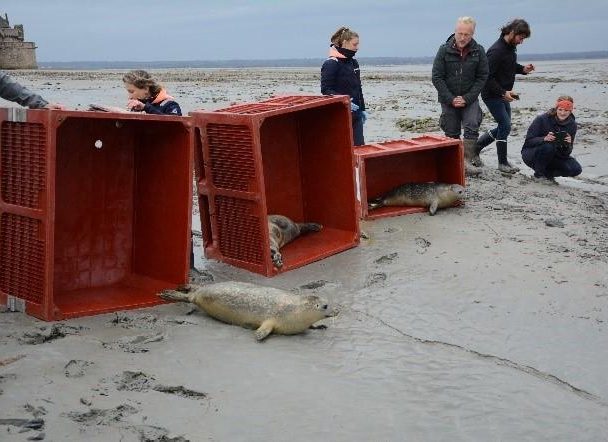
Credit © EPMSM
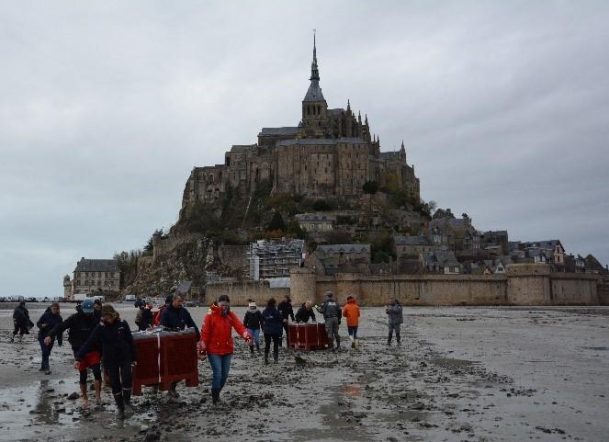
At 1.30pm on Tuesday November 14, at the foot of the Mont, three young calf seals were released by the Océanopolis care center, which had taken charge of them.
The Mont is not the only remarkable resident of the bay: a colony of seals has been established here since the late 1970s. It is the third largest breeding site in France (1300 individuals in total), with around 120 individuals and 37 births in 2022. Two species covered by the Habitats Directive (Natura 2000) are present here: the sedentary calf seal, which breeds every year in the bay and is classified as “near-threatened” at national level, and the transient grey seal. Both species use the bay’s numerous sandbanks as resting and pupping areas, and the estuarine zone and channels as feeding grounds.
The ENGIE Foundation supports the Établissement public national du Mont Saint-Michel in its efforts to monitor and preserve the bay’s seal colony, in collaboration with the Office français de la biodiversité, the Conservatoire du littoral and the DREAL Normandie.
The ENGIE Foundation also supports ACMOM (Association pour la Conservation des Mammifères et Oiseaux Marins de Bretagne), which runs the marine animal care center located at the heart of Océanopolis, the national center for scientific, technical and industrial culture dedicated to the ocean. Since the center’s creation in 1990, over 700 wild seals in difficulty have been cared for by the center.
Educating and raising awareness about preserving biodiversity
« Plus de nature dans mon quartier » with the LPO

The ENGIE Foundation works alongside the LPO to preserve biodiversity with the “Plus de Nature dans mon quartier” program.
The LPO’s “Plus de Nature dans mon quartier” (More Nature in my neighborhood) citizen mobilization program is organized around actions to raise awareness, preserve and integrate biodiversity in priority urban policy neighborhoods. These areas have been particularly hard hit by the heatwaves of recent years, as well as by increased air pollution. The LPO is leading the implementation of the program in conjunction with local players, such as residents, schools, local authorities, social landlords and neighborhood associations.
Program objectives:
- Protect and enhance existing biodiversity in priority neighborhoods
- Encourage residents to become active players in their living environment by taking ownership of biodiversity issues
- Change their vision of nature, which is often very “aseptic”.
- Train players and supervisors to develop a shared vision of nature in the city


Support for the Pae Pae NO te Ora association's "Education and awareness campaign to safeguard coral ecosystems" project

Photos credits Association Pae Pae NO Te Ora

The Pae Pae NO Te Ora association was created in 2003. Its mission is to protect and preserve the lagoon and coastline of the commune of Punaauia.
Several fields of action:
- Voluntary actions to collect garbage on the beach and maintain the underwater trail once a month. Information panels and litter garbage cans have been installed in the square to raise visitor awareness.
- Twice-yearly collection of scientific data using the “Reef Check” protocol, which monitors changes in the coral ecosystem at two specific points in the Punaauia lagoon.
- Management of an underwater educational trail on Vaiava beach
The project supported consists in offering free visits to the underwater educational trail. Visits to the underwater educational trail take place throughout the school year, according to requests from the various social services.
IMPACT: 1,000 children and teenagers made aware of lagoon preservation and waste management every year.
Development of a sustainable beekeeping industry – GoodPlanet
The GoodPlanet Foundation and the ENGIE Foundation are acting for biodiversity in Morocco with the development of 10 beekeeping cooperatives in the Mesguina forest to enable producers to develop their beekeeping business profitably and sustainably, as part of its commitment to biodiversity and the climate.
The Mesguina forest (near Agadir) is in the Arganeraie biosphere zone, a UNESCO World Heritage site. Its rich biodiversity offers strong beekeeping potential, thanks to high altitude forests rich in thyme and seaside areas populated by euphorbia. Beekeeping is a significant resource (up to 40% of income) for the inhabitants of this area, hard hit by the rural exodus.
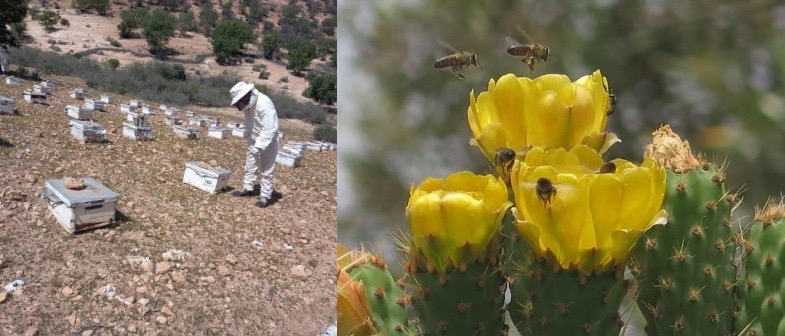
© GoodPlanet
Project objective: to promote and develop a sustainable beekeeping industry and raise public awareness of the issues involved in preserving bees
Bees are essential for pollinating flowers, helping to maintain biodiversity and the ecological balance of ecosystems. They also play a vital role in the various life phases of many plant species, both wild and cultivated (impact on the many citrus and vegetable crops in the nearby Souss plain).
This project will provide support for beekeepers whose swarms have been severely affected by the impacts of climate change, including several years of persistent drought. It also aims to provide support through capacity-building, particularly in terms of strategy, finance and product development.
EXPECTED RESULTS :
- 95 beekeepers from 10 supported cooperatives
- 4 cooperative honey houses equipped with collective equipment (for extracting, ripening and potting honey)
- 4 cooperative premises upgraded to Moroccan sanitary standards
- 40 beekeepers trained in beekeeping techniques, conservation of bee breeds, health standards, quality control, etc.
- 1 feasibility study for a “Mesguina forest honey” label
- Visit to a honey house and exchanges of experience between beekeepers
- 100 students from 9 rural schools learn about bee conservation
- 30 farmers and beekeepers work together to prevent pesticide-related bee mortality.

UCTM stand - Meknes Agricultural Fair © GoodPlanet
Workshops to raise awareness of bee conservation
The region’s beekeepers and farmers were made aware of the importance of using organic and environmentally friendly products to ensure the safety of bees. Apart from drought, bee swarm mortality in the Souss Massa area is due to intoxication by phytosanitary treatments of crops, especially citrus fruits.
This year, schoolchildren in the villages of the cooperatives concerned will be made aware of the role of bees in biodiversity and human nutrition. 8 teaching aids have been created to accompany the workshops in the classrooms.

Inspection of the beehives © GoodPlanet
International Day of Education

On January 24, the ENGIE Foundation celebrates International Education Day.
According to UNESCO, 250 million children and young people do not go to school, while 763 million adults lack basic literacy skills.
The ENGIE Foundation wants to give the most vulnerable children the energy to learn and grow in a positive environment and is convinced that children will build tomorrow’s world; giving them the energy to act is vital for the future of the planet.
The Foundation supports projects that promote education for as many people as possible, in France and abroad, around 3 themes:
- Education through sharing, transmission and discovery
- Educating for academic success
- Education to improve living conditions for children.
Education through sharing, transmission and discovery
UNESCO CAMPUS: Understand contemporary issues and become an agent of change.
Since its creation, UNESCO’s aim has been to support global access to education, to fulfill its mandate of building peace through international cooperation in education, science and culture.
UNESCO and the ENGIE Foundation have launched the Campus program to help young people better understand major contemporary issues and their role as young citizens.
Drawing on the knowledge of various UNESCO and civil society speakers, experts in their fields (technology, education, science, etc.), the UNESCO Campuses aim to tackle today’s challenges with middle and high school students in the form of a free, horizontal discussion.
The aim is to inform, raise awareness and mobilize young people around major social and environmental issues.
IMPACT: UNESCO CAMPUS has reached 25,000 young people since 2014, of whom 5,500 have taken part in the online Campuses (for a total of 145 countries reached).
This CAMPUS scheme is incidentally an important vector for raising awareness of the key issues carried out by UNESCO, building its image among a young audience, as well as a strong relational tool between UNESCO and teachers.
By 2022-2023:
- 8 online campuses
- 1 face-to-face at UNESCO headquarters
- 36 schools involved.
- 1577 students
The ENGIE Foundation is supporting the campuses on biodiversity and the oceans, Access to science for all, themes for the years 2023-2024.
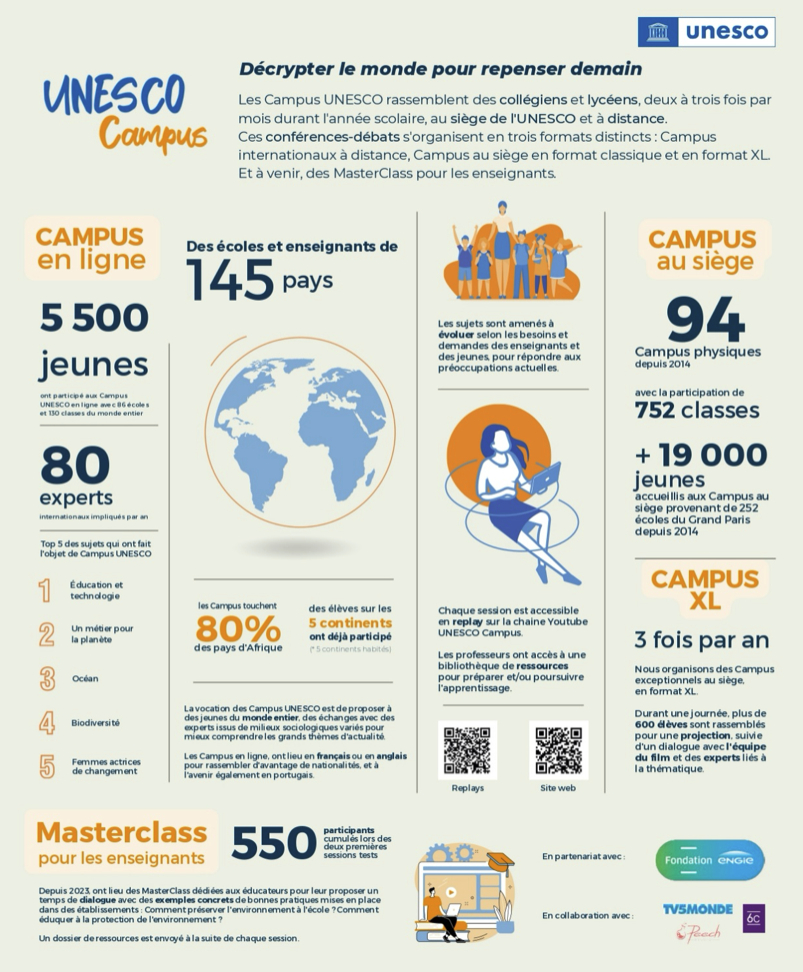
Campus Sciences et Filles online
Promoting diversity and girls' access to science with ENS Paris-Saclay
As part of its equal opportunities plan, ENS Paris-Saclay is involved in several programs designed to help young people (high school, middle school and high school students), particularly girls, gain access to higher education and research careers.
The ENGIE Foundation has made access to science a priority in its education program.
That is why the ENGIE Foundation is supporting ENS Paris-Saclay for 2 school years in its science awareness programs for young people (especially girls), to:
- stimulate young people’s interest in science,
- boost the academic ambitions of young people from a variety of socio-territorial backgrounds, and of girls,
- limit self-censorship.
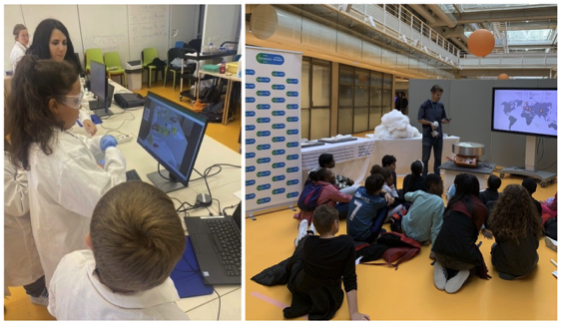
On October 6, as part of the Fete de la Science 2023, ENS Paris-Saclay organized the Village des Sciences for 700 youngsters.
Teacher-researchers, doctoral candidates and students welcomed 300 primary school pupils to several “Mini Researchers” workshops in all scientific disciplines, in the presence of Nathalie Carrasco, President of the School, and Anne PEYROCHE, Vice-President in charge of strategy and resources.
With Toutes à l'école, environmental education for girls in Cambodia
The Toutes à l’école association, founded by journalist Tina Kieffer in 2005, aims to bring a prominent level of education to the poorest girls in Cambodia, so that they can become free, educated women.
Every year, 100 new girls aged 5 to 6 from the poorest families join the Happy Chandara campus in the suburbs of Phnom Penh, Cambodia, from kindergarten onwards. They will have the opportunity to pursue a high-level curriculum in kindergarten, primary school, junior high and high school, taught in Khmer, English and French.
The action continues with young baccalaureate students continuing their studies, who are accommodated in the two Chandara Students’ Homes in Phnom Penh, where they build an independent adult life in a secure environment.
As early as 2016, sensing the scale of the climate crisis, the association integrated our first environmental protection courses into its educational program and created permaculture vegetable gardens within the Happy Chandara campus.
Today, the IPCC report is clear: Cambodia is one of the country’s most vulnerable to global warming.
The association aims to make Happy Chandara the first entirely green pilot school in Cambodia.
The ENGIE Foundation supports the creation of the Green Team
The Green Team is made up of trainee engineers from the Grandes Ecoles (Ecole Polytechnique, Ecole Centrale – Supélec Paris and Lyon), agronomists or communication schools such as Celsa, all of whom are passionate about environmental issues. They design educational tools, run workshops with our students and prototype projects (such as greening spaces and creating educational videos).
Trainees lead:
- Awareness-raising workshops on the ecological transition for students and campus staff.
- Organic soap-making workshops for boarding schools and hygiene baskets for families.
- Paper recycling workshops for postcards sent three times a year to student sponsors.
- Eco-committees with our students.
- Plastic collections around the school and alongside institutional partners in the capital Phnom Penh.
To give students access to the best training, the association has forged partnerships with universities and Grandes écoles in Europe and around the world.
The ENGIE Foundation is supporting a student, TOLA CHHORN, with a scholarship to the Ecole des Mines.
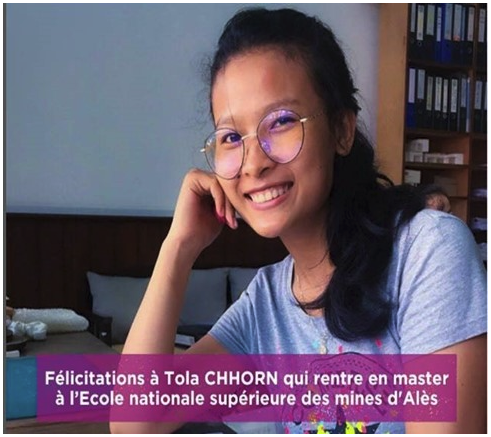
Culture with the 10 Months of School and Opera program, discovering the professions at the Paris Opera

The ENGIE Foundation, patron of the Académie de l’Opéra de Paris, supports the 10 mois d’Ecole et d’Opéra program
The Paris Opera’s 10 Months of School and Opera program aims to promote equal opportunities and academic success for pupils in priority education networks. This long-standing partnership with the Paris and Versailles education authorities is continuing to develop in Corsica, Centre-Val de Loire and Normandy.
IMPACT
In collaboration with the educational teams at each school, the Paris Opera is involved in innovative teaching methods that reach over 900 students each season, from nursery school to vocational high school.
RESULTS:
- 60% of beneficiaries improve their writing skills.
- +25% exam pass rate.
A SENSITIVE ENCOUNTER WITH OPERA
Experiencing a performance is the first step in learning about the history and heritage of the Opéra national de Paris. Every season, students attend rehearsals and performances of ballets and operas at the Palais Garnier and Opéra Bastille. These encounters with works at distinct stages of creation enable students to develop their viewer’s eye and acquire new knowledge.
Meeting professionals from the Opéra national de Paris in theaters or classrooms is a high point in the students’ careers, nurturing the dreams of some and the vocations of others by making opera a future.
ARTISTIC PRACTICE AT SCHOOL
In partnership with teaching teams, professional artists set up practical artistic workshops – music, singing, dance, theater, visual arts, etc. – during school hours. – during school hours.
As an integral part of students’ school lives, these workshops provide an opportunity for each student to learn about the creative process and develop an awareness of others in a context of artistic expression.
A SPECIAL SCHEME: “SHOW” CLASSES
Each year, two classes – one from the Versailles academy, the other from the Paris academy – are selected to take part in this program. Artists offer students three-hour weekly workshops during school hours, in the belief that intense artistic practice can be a key factor in academic success.
The “performance” classes meet at the Opéra for “immersion” days, leading to the creation of a show performed at the Opéra Bastille Amphitheatre in June.
Vocational high school classes in costume, hair and make-up take part in the creation of the show.
Educating for academic success
With Fête le Mur: programs focused on academic success
Founded by Yannick Noah over 20 years ago, the Fête le Mur association enables children from disadvantaged housing estates to play tennis in the heart of their neighborhoods, under the supervision of professional tennis coaches. Since its creation, the association has been offering educational support to young beneficiaries at some of its sites throughout the year.
The ENGIE Foundation celebrates 25 years of partnership with Fête le Mur.

Vacances Educ’Actives
Since 2020, the academic difficulties observed during confinement have led them to develop school vacation courses combining sports activities and academic support: Vacances Educ’Actives. This program during the school vacations not only brings children who have fallen behind up to speed, but also enables them to resume supervised physical activity.
IMPACT 2022-2023:
Vacances Educ’Actives means:
- 5,816 children benefiting
- 143 courses and 657 days of courses
- 9 regions involved, including 2 overseas.
- 77 sites, 137 neighborhoods
- 18,178 young beneficiaries, 47% of them girls
Education to improve living conditions for children
Strengthening the education of 600 girls at Likuni Girls' Secondary School, Malawi
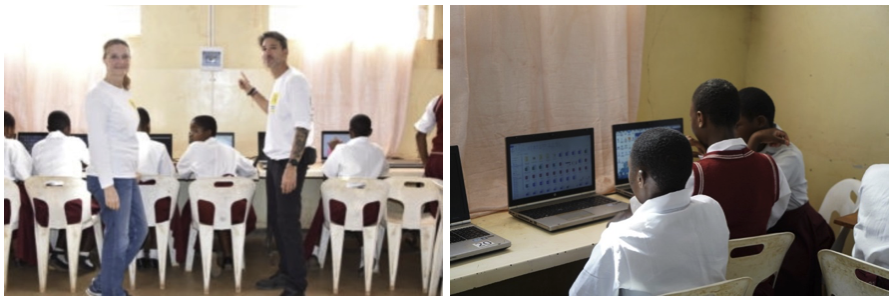
ENGIE volunteers from ENERGY ASSISTANCE Belgium have helped improve the educational landscape for 600 girls at Likuni Girls’ Secondary School in Malawi, by installing solar panels and batteries.
Malawi faces frequent power cuts that disrupt the learning process. Solar power is a reliable source of energy that not only lights up classrooms, but also contributes to the well-being of our planet.
Lighting the way to education:
Likuni Secondary School for Girls, a boarding school near Lilongwe, caters for 600 girls. The solar system not only lights up the classrooms after dark (around 5 p.m. because of the latitude), but also powers 30 computers, providing access to modern educational tools. We passionately believe that every girl deserves a chance for a bright future, and that access to education is the key.
Although the school is connected to the local grid (ESCOM), persistent power cuts led to the installation of 22 photovoltaic panels and 4 lithium batteries as back-up. The panels were placed on the roof of the school building, and a restored technical room now houses the solar control equipment, electrical boxes and batteries. The solar system (10kWp with a storage capacity of 19.2kWh) ensures a continuous power supply to classrooms, the computer room and the administration block during blackouts.
Towards sustainability and ecological friendliness:
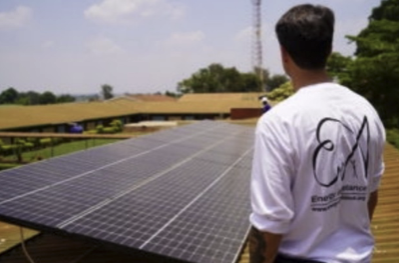
In addition to the classrooms and administration block, the dormitories, kitchens, etc. are still not connected. A feasibility study is underway to supply the kitchen with biogas. This would enable daily meals to be prepared without the need for electricity or firewood, and provide biofertilizer for the vegetable garden, thus offering an environmentally friendly solution. The aim is to combat deforestation and improve the school’s self-sufficiency.
Promoting biodiversity for a sustainable future:

As part of its commitment to sustainable development, Likuni Girls’ Secondary School is committed to planting 800 indigenous trees. This planting aims to reforest areas of Lilongwe most affected by deforestation (for firewood and charcoal) and to teach girls the benefits of having trees nearby. Trees planted along watercourses aim to reduce flooding during the rainy season, which is particularly dramatic given the floods that have hit Malawi in recent years.
World Climate Day: ENGIE FOUNDATION PARTNERS MEET AT COP28

On December 8, we celebrate World Climate Day, created at the initiative of several NGOs as a reminder of the threat of global warming and the need to act to limit its effects.
The aim of this day is to raise public awareness of climate change issues, and to expose the ever-increasing impacts they are having on our Earth.
With 47% of its projects dedicated to access to renewable and sustainable energies and to biodiversity in 2023, the ENGIE Foundation is committed to the environment year after year. The aim is to participate in ambitious, high-impact projects and to contribute to the collective effort of the Agenda 2030 through the achievement of the Sustainable Development Goals (SDGs) and carry ENGIE’s raison d’être: this is what guides the ENGIE Foundation’s action daily.
With the 28th UN Conference of the Parties on Climate Change (COP 28) taking place until December 12, this day is an opportunity to highlight the commitments of the ENGIE Foundation alongside its partners.
The ENGIE Foundation is acting for the climate around 2 themes
- Support for research and innovation
- Concrete action to combat global warming
ENGIE FOUNDATION PARTNERS MEET AT COP28
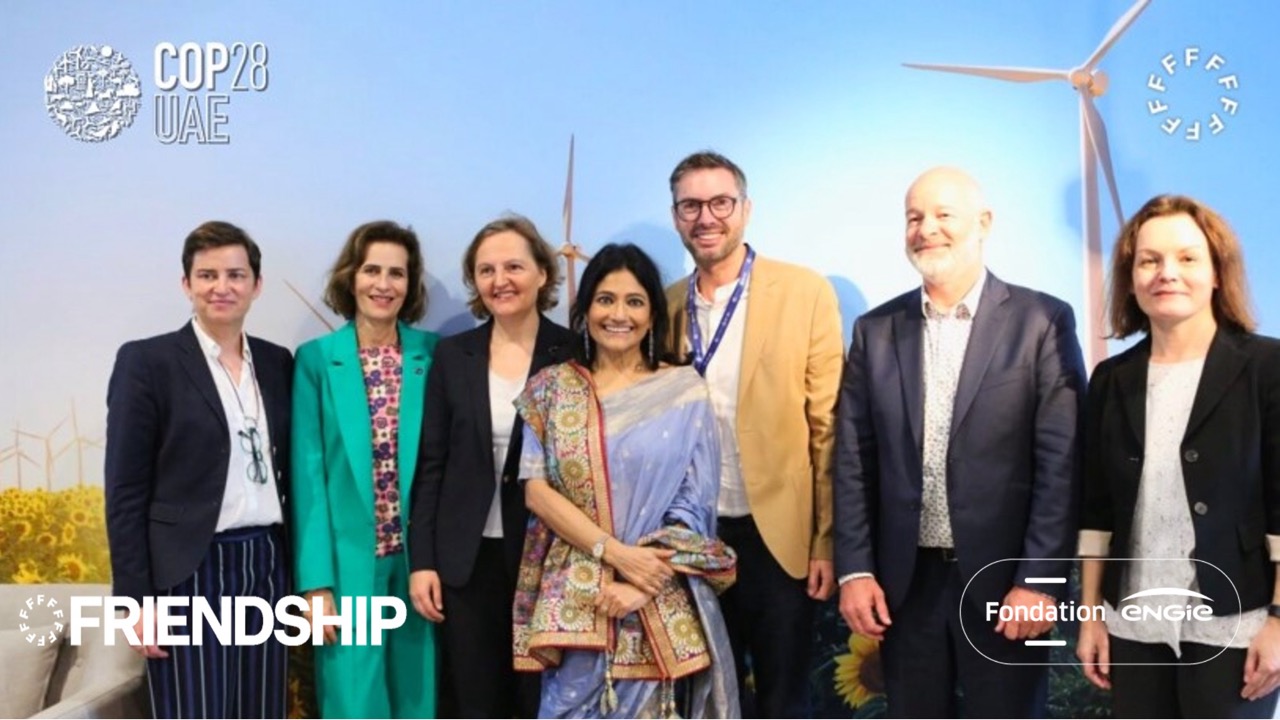
Claire Waysand, Executive Vice President of ENGIE in charge of Corporate Secretariat, Strategy, Research & Innovation and Communications and Vice President of the ENGIE Foundation, took part alongside Runa Khan, Founder of Friendship, at the round-table “How can corporate commitments to sustainable development contribute to access to renewable energies, biodiversity protection and climate adaptation for greater prosperity, including in developing countries?”

Claire Waysand recalled the ENGIE Foundation’s historic and innovative commitment to Friendship in 3 areas
- A model solar village, which has given rise to two other projects financed by the Government of Bangladesh.
- A mangrove replanting project
- Connected schools
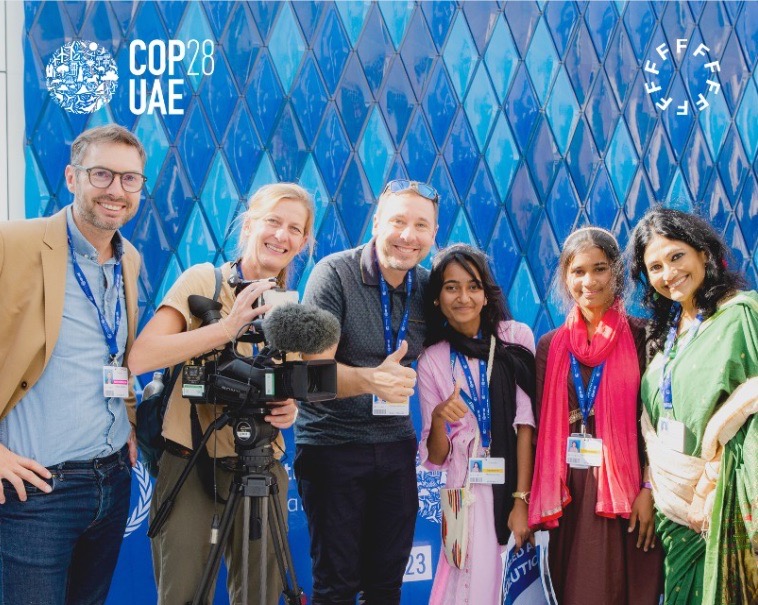
The COP28 also provided an opportunity to meet two Bangladeshi ambassadors for Friendship France’s “Écoles Connectées” project, supported by the ENGIE Foundation: Biuti Akter and Ronzana Akter, alongside Runa Khan, Founder and Executive Director of Friendship NGO, and Nasrul Hamid, Bangladesh’s Minister of Energy.
Watch the replay of the Arte interview with Biuti Akter and Ronzana Akter: https://www.arte.tv/fr/videos/117976-000-A/la-cop28-tribune-des-victimes-du-dereglement-climatique/

The ENGIE Foundation is proud to support this connected schools project, which links French middle and high schools with secondary schools in Bangladesh, on solutions for adapting to climate change.
The project encourages students to share innovative solutions for coping with climate change: logistical or behavioral adaptations, changes in practices and lifestyles, etc. By taking a stand on these issues, they can become agents of change, raising awareness in civil society (fellow students, parents, associations, etc.).
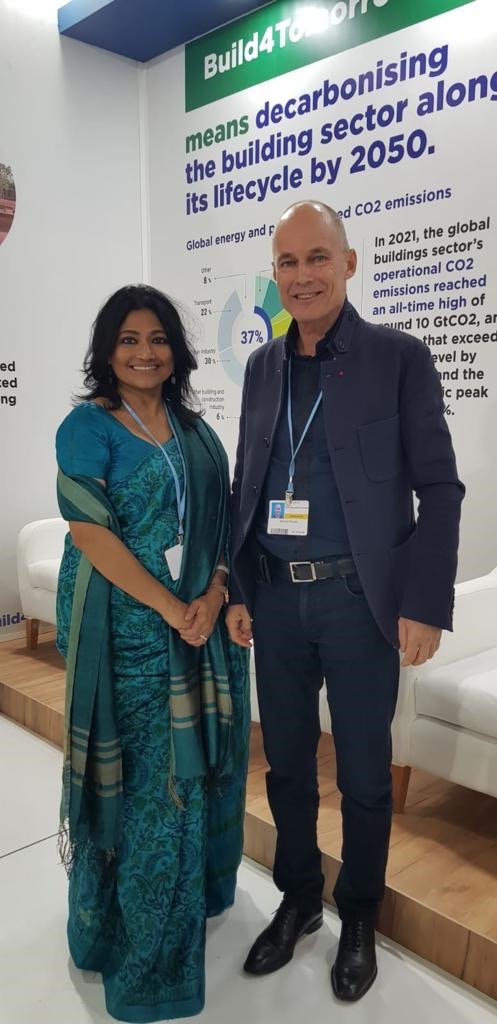
At COP28, Bertrand Piccard presented the new climate narrative of the SOLAR IMPULSE Foundation: A STRATEGY TO OVERCOME RESISTANCE TO ECOLOGICAL TRANSITION.
“It’s imperative to design a new narrative and replace the one that hasn’t worked in the past. What we are asking for is nothing less than a revolution in the way we talk about climate action.”
Bertrand Piccard
President of the Solar Impulse Foundation
More information: https://solarimpulse.com/le-nouveau-narratif-du-climat
FIGHTING THE EFFECTS OF GLOBAL WARMING AND IMPROVING LIVING CONDITIONS IN BANGLADESH WITH FRIENDSHIP
For over 10 years, the ENGIE Foundation has been working alongside the NGO Friendship to build community capacities, encourage major contributions from women, facilitate access to solar energy and training, and protect biodiversity.
Restoration of 14 hectares of mangroves in southern Bangladesh
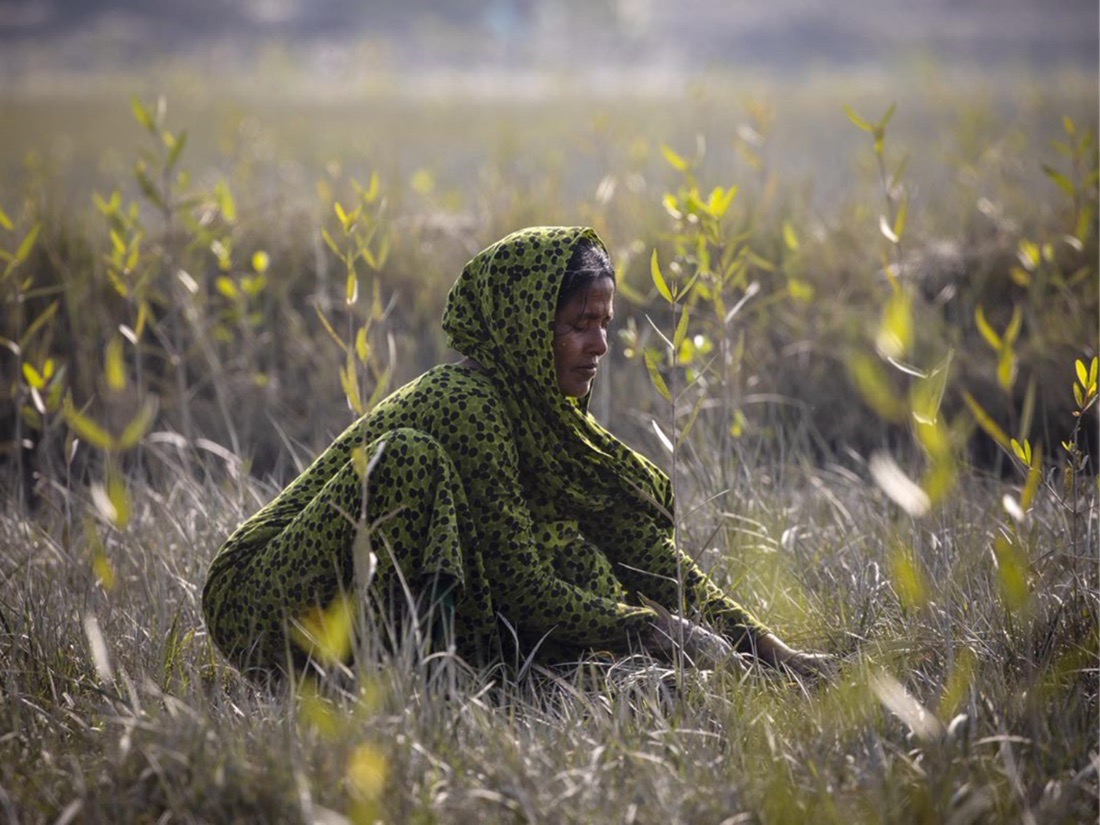
One of Bangladesh’s greatest assets is the world’s largest mangrove forest, the Sundarbans, a UNESCO World Heritage Site. Unique and diverse coastal ecosystems, mangroves are a formidable tool in climate change mitigation thanks to their high CO2 absorption capacity.
However, many mangrove reforestation projects in Bangladesh are not sustainable because they consist of non-resilient monocultures, are not effectively managed during the growth phase, are sometimes planted with species not adapted to the area or fail to take socio-economic factors into account.
Plantation of 14 hectares in 3 areas located in 3 villages in the Satkhira district (land is a scarce commodity in Bangladesh and it is difficult to have single plots available for reforestation).
The first two areas (30,000 trees) were planted in October 2022 by local communities under the supervision of Friendship and local forestry experts. The third (12,000 trees) is scheduled for May 2023. In all, almost 2,000 meters of dikes will be protected against flooding thanks to this project, bearing in mind that the damage caused by salt water can persist for an exceptionally long time (flooded soil becomes unfit for cultivation for years, just as a livestock pond invaded by salt water can no longer be used).
Six community groups of 30 people received capacity-building training (prior to planting) in seeds, nurseries and planting; they also each took part in the first follow-up meetings.
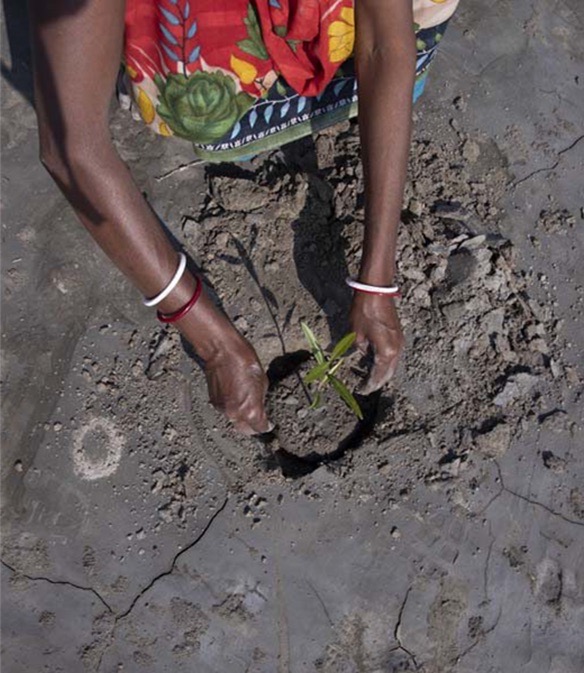
IMPACT: over the 3 zones, 240 participants will be trained, corresponding to between 1,200 and 1,440 direct beneficiaries (family members). Indirect beneficiaries will be far more numerous. They include all the villagers, farmers and fishers who will see their homes, fields and ponds protected from flooding and salinization.
Energy to improve living conditions in Bangladesh
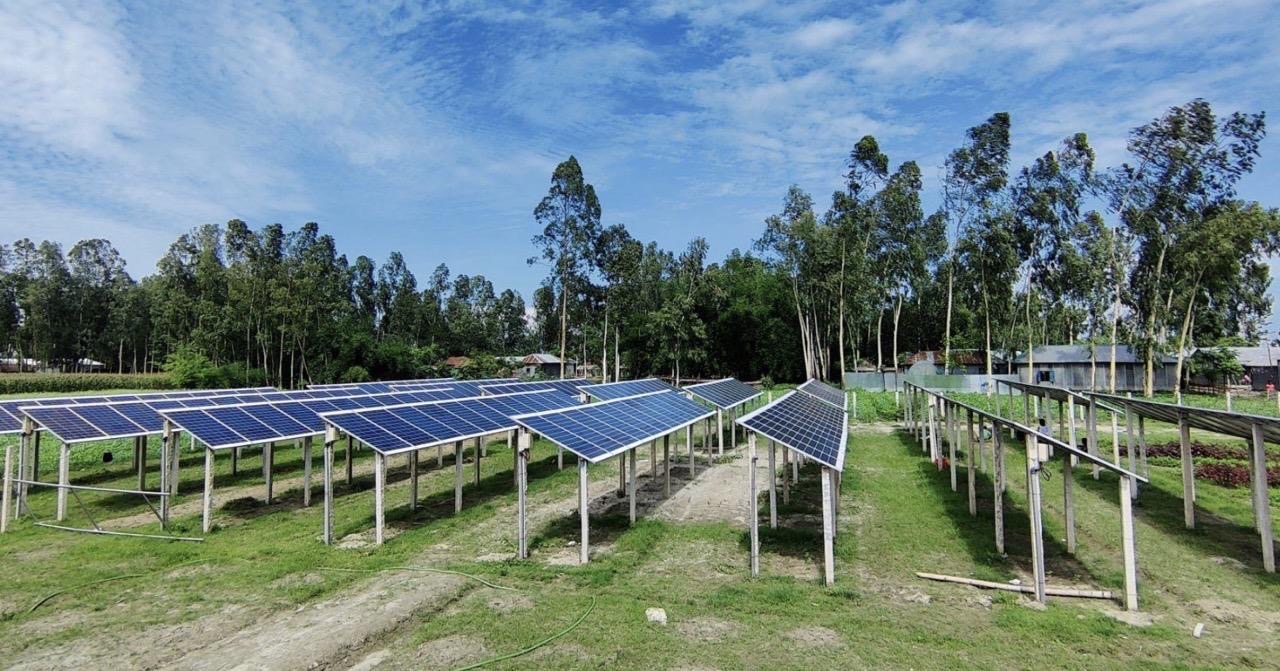
Since 2011, with the support of the ENGIE Foundation and Energy Assistance France, the NGO Friendship has been developing a sustainable rural electrification project for remote villages in Bangladesh.
Friendship has designed and installed the first solar-powered electricity microgrid in the tanks of northern Bangladesh, inaugurated on August 22, 2021, in the presence of Mr. Nasrul Hamid, Bangladesh’s Minister of Electricity and Energy.
The solar village, built in the village of Goynar Potol, is now operational, bringing well-being, prosperity and satisfaction to its inhabitants. The population of the Goynar Potol tank has grown considerably. The village grew from 150 to over 500 houses in early 2022, due to the arrival of people who had left other islands that disappeared during the exceptional floods of 2020.
The solar village in figures:
- 3,000 inhabitants of Goynar Potol now have access to electricity
- 54 kWp of electricity generated by solar panels and stored in batteries
- 200 solar panels and 200 batteries installed
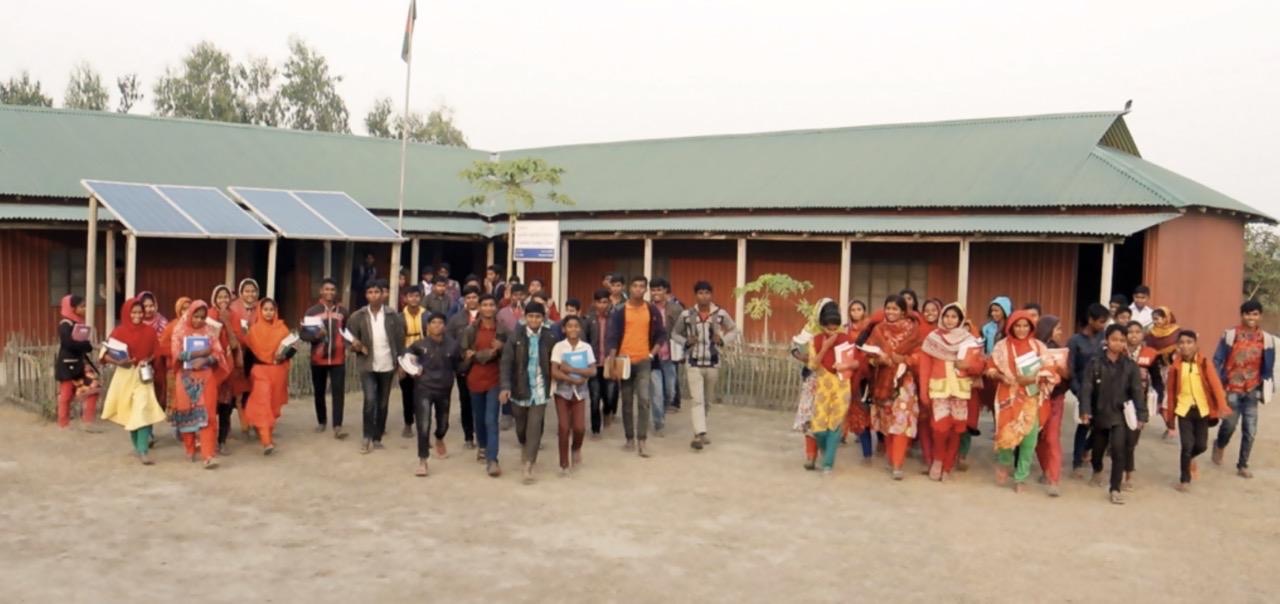
Thanks to the electricity generated and stored, every household will be able to operate lamps, fans, televisions and cell phone chargers daily. Light provides security at night and access to healthcare. Stores can stay open in the evening, generating new income for shopkeepers. Children can study in the evenings and follow lessons broadcast on television.
In 2023, Friendship and the ENGIE Foundation will ensure the continuity and technical optimization of the operation of the Goynar Potol solar village, as well as the strengthening of local capacities through a training plan to guarantee the sustainability of both the solar village and electrification in these remote areas of the country.
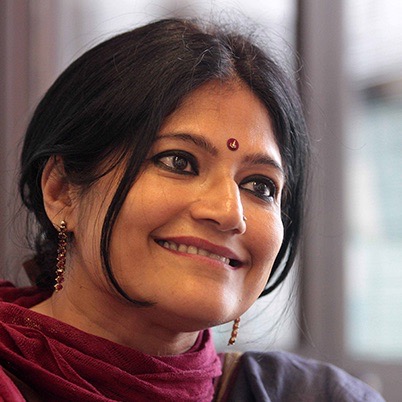
Interview with Runa Khan, Founder and Executive Director of Friendship
✷ Why this commitment to a Mangroves program and this new development for biodiversity?
My country is one of the hardest hit by climate change in the world. Every year, cyclones, floods and storms follow one another and punctuate the daily lives of the population. It is worth noting that their frequency and intensity are increasing due to global warming, forcing communities to move 25 times in their lifetime! By 2050, to escape the consequences of climate change, a third of the population of Bangladesh will have to move – the equivalent of the entire population of France!
To the south, in the Bay of Bengal, salt water from the Indian Ocean is eroding riverbanks and ruining cultivated land for years to come. Here lies the Sundarbans Forest, the world’s largest mangrove swamp. It covers the delta of the Ganges, Brahmaputra and Meghna rivers. This site is world-renowned for the richness of its fauna: 260 bird specimens, 400 fish, between 250 and 300 Bengal tigers and other endangered species, but it is also a very fragile ecosystem: due to pollution, over-industrialization and deforestation, the mangrove has lost 20% of its surface area in twenty years.
Since 2017, Friendship has been carrying out a vast mangrove reforestation project, which is essential for environmental protection and socio-economic development in the region: this ecosystem now provides many added resources for local communities (crabs, shrimps…) and limits saltwater intrusion into fertile land by acting as natural dikes.
✷ How do you see this program? What are the challenges?
For a reforestation project to be sustainable, it must be designed considering all the environmental and social-economic factors of the region. We face several challenges to ensure long-term effects:
- choosing resilient crops: we need to identify the right species of tree to plant in the right place, depending on the nature of the soil, the topography of the land and the amount of sunlight
- protecting the trees throughout their growth period: it takes 5 years for nursery trees to mature before they can be replanted in the mangrove. These trees need to be protected from goats that come to eat them and prevented from being destroyed by communities for resale or personal use. To achieve this, it is vital to include the communities in the development of the project! This is one of the key factors for success: community support for the project and their involvement at every stage of implementation. This ensures ownership of the project and the sustainability of the plantation. People who have planted the trees themselves and know the importance of mangroves to their living conditions will naturally take care of them.
We have developed a solution that meets 3 objectives:
- plant at least 5 different tree species over hundreds of hectares along tidal rivers to guarantee respect for biodiversity and encourage the development of a new terrestrial or aquatic ecosystem.
- include local residents and diversify their livelihoods to avoid degradation of the plantations by poverty-stricken communities.
- involve local authorities and strengthen their cooperation with local populations.
We launched this program in 2017 thanks to the support of the Luxembourg Cooperation and I would like to thank the ENGIE Foundation for partnering with Friendship to extend these activities over 14 hectares of mangroves.
Thanks to the support of the ENGIE Foundation, Friendship can carry out these activities on 14 hectares in 3 areas of the region: 10 hectares have already been planted in the villages of Horishikhali and Jhapa and 4 hectares will be planted in May/June 2023 in the village of Chakla. Today, 70 people are working on the project with the ENGIE Foundation.
What is more, we noticed that each replanted tree gave birth to 2 or even 3 new trees within two years! This exponential growth shows a strong environmental and socio-economic impact for years to come.
THE ENGIE FOUNDATION PARTNERS THE SOLAR IMPULSE FOUNDATION
Efficient solutions for clean economic growth
To meet ecological challenges without undermining economic growth, Bertrand Piccard and the Solar Impulse Foundation have identified 1000+ clean, cost-effective solutions. The Solar Impulse Foundation has organized these solutions into a research engine for climate action – the Solutions Explorer – to support their large-scale implementation. By giving political and economic decision-makers the tools to adopt far more ambitious energy and environmental policies, the Foundation will help them to establish a roadmap for achieving their environmental goals.
The ENGIE Foundation partners the Solar Impulse Foundation’s “City of Tomorrow, an exploration in 1000+ solutions” exhibition.
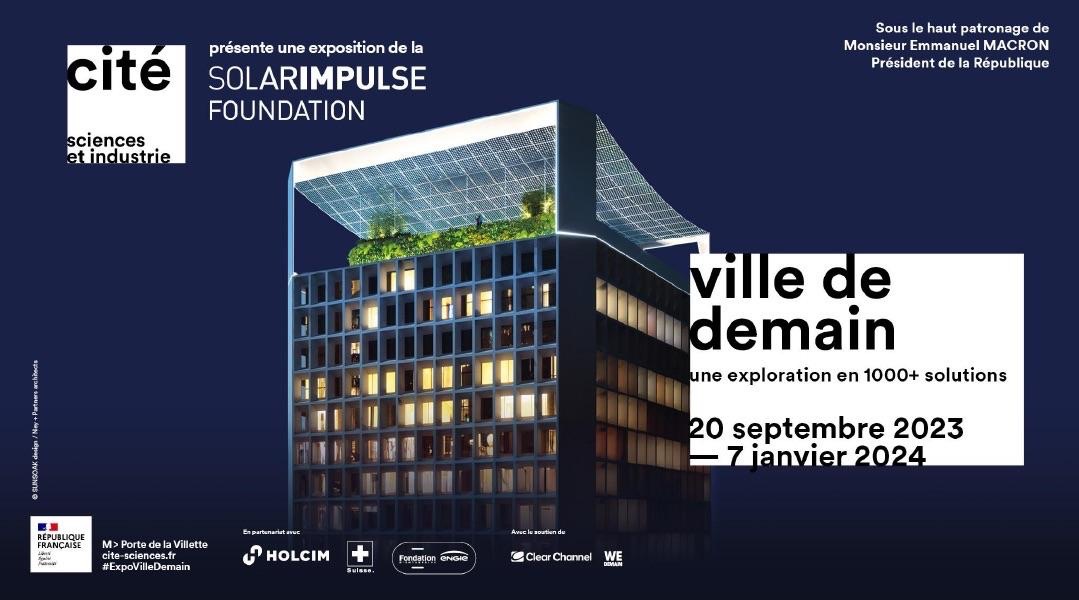
From September 20, 2023 to January 7, 2024, the Cité des Sciences et de l’Industrie, with the support of the ENGIE Foundation, is hosting “Ville de demain, une exploration en 1 000+ solutions”, an exhibition designed by the Solar Impulse Foundation, chaired by Bertrand Piccard.
Echoing the “Urgence climatique” exhibition at the Cité des Sciences, the “Ville de demain, une exploration en 1 000+ solutions” exhibition, focusing on the challenges of ecological transition in urban environments, invites the public to explore the many innovative approaches that today’s technologies offer to protect the environment while promoting economic development. A fun-filled tour takes visitors on a journey of discovery through concrete, efficient proposals developed in the fields of energy, water, construction, sustainable housing, mobility and waste management.
As a partner of the SOLAR IMPULSE Foundation and a member of the Cité des Sciences et de l’Industrie partners’ club, the ENGIE Foundation focuses on environmental education, raising awareness of the fight against global warming and the preservation of biodiversity, and aims to make younger generations more aware of the challenges of ecological transition.
Our world is in the throes of change, and cities, which account for 75% of CO2 emissions, must urgently commit to the ecological transition. It’s this transformation that the City of Tomorrow, an exploration in 1,000+ solutions exhibition invites visitors to discover, by appealing to our collective boldness and ability to believe together in our potential for change: how can we move from rhetoric to the concrete application of innovative solutions, capable of mobilizing individuals, entrepreneurs and politicians to build a clean, collective, sustainable city?
In a pioneering spirit that aims to be constructive and non-partisan, with eco-explorer Bertrand Piccard as our guide, the exhibition offers visitors a unique insight into urban ecological issues and the sustainable solutions that exist today to meet them, with concrete applications in different cities.
On the 25th of November, a new Bubble Barrier has been launched in Portugal with the support of the ENGIE Foundation and ENGIE Portugal, preventing plastic from flowing into the Ocean
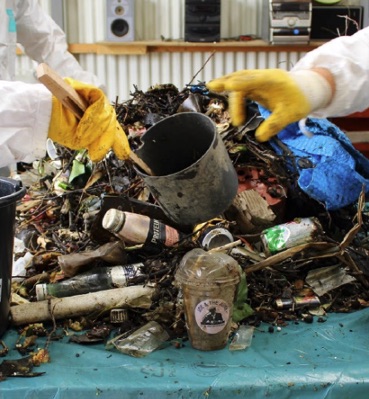
Credits The Great Bubble Barrier
Each year 1.8 million tons of plastic enter our oceans via rivers. Once lost at sea, plastic is almost impossible to retrieve and degrades into smaller particles.
How can we fight against this plastic pollution in the oceans? Scientists have discovered that 80% of the plastic waste found in the ocean is discharged by more than a thousand rivers, and that most of this waste is transported by small streams in densely populated urban areas, rather than by larger rivers. This finding is crucial to understanding and solving the problem of plastic waste.
This is a major issue in Portugal, where the Porto region is home to two of the most plastic-polluted rivers in Portugal, including the River Ave (around 10 tons of plastic are discharged there every year).
The ENGIE Foundation wanted to contribute to this issue by betting on innovation and supporting the initiative of The Great Bubble Barrier, a Dutch start-up founded in 2017, to set up an innovative system to combat plastic waste in rivers, a Bubble Barrier in the Porto region of Portugal.
The 25th of November, this new Bubble Barrier has been inaugurated on the river Ave in the city of Vila do Conde
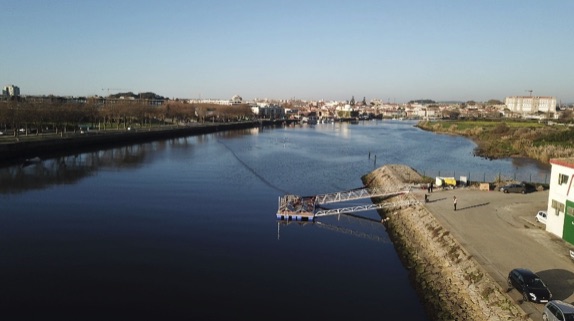
Credits The Great Bubble Barrier
This Bubble Barrier is the first one installed outside the Netherlands by the Dutch start-up after the two first Bubble Barriers in operations in Amsterdam (2019) and in the region of Katwijk (2022).
According to preliminary studies, the Bubble Barrier can catch up to 86% of debris in the Ave River, before it flows into the Atlantic Ocean.
Technology
By injecting air into a perforated pipe at the bottom of the stream (1), a wall of bubbles generates a vertical current. This brings the plastic to the surface, then directs it to the bank where it is collected by a recovery system (2) placed at the river’s edge.
Bubble Barrier is a unique, innovative and environmentally friendly system.
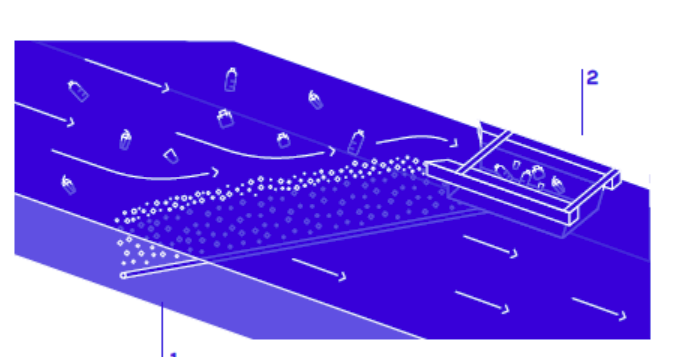
Credits The Great Bubble Barrier

This project in Portugal was developed as part of MAELSTROM (Smart technology for MArinE Litter SusTainable RemOval and Management), a major EU-funded project supporting innovative technologies for the removal and treatment of plastic pollution in river ecosystems. It has been developed by a consortium of 14 partners (including research centers, recycling companies, NGOs, marine scientists, and robotic experts from 8 European countries), in charge of specific tasks (assessing the presence of waste in rivers, removing waste, recycling…).
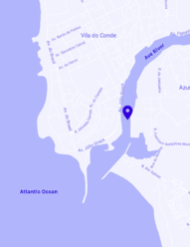
Credits The Great Bubble Barrier
A Bubble Barrier in an estuary
The Ave River ends in an estuary meaning that the incoming tide brings a flush of salt water into the river mouth twice a day, thereby reducing or even reversing the flow direction, and increasing the water level by roughly 2.5 meters…
The Bubble Barrier Vila do Conde is the first project in an estuary. The results of the pilot will be evaluated after 1 year of operation. With this project, The Great Bubble Barrier aims to realize a standard design for more tidal rivers in the future.
Interview with CARLOS ROSARIO, CEO of ENGIE Portugal
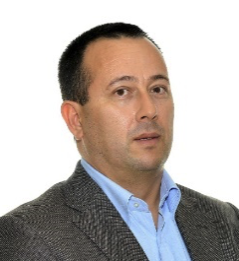
Carlos, could you present briefly the activities of ENGIE Portugal?
ENGIE Portugal is a leading company in the field of energy transition. ENGIE is present in the country since 1983 in electricity production and energy services and we provide our customers with solutions that foster energy and environmental sustainability through the generation of renewable and thermal energy, the district heating and cooling system in Lisbon and energy solutions to tertiary and industrial clients.
- ENGIE is the 2nd player in the country in electricity production with more than 4 GW of installed capacity: 1.9 GW of thermal capacity (TrustEnergy), 1.7 GW of hydroelectric capacity (Movhera) & 513 MW of wind capacity.
- ENGIE Portugal is also operating the largest district heating and cooling system of Portugal (Climaespaço in Lisbon).
- ENGIE Portugal (trough ENGIE Hemera) is also a specialist of medium and large-scale decentralized solar photovoltaic systems for B2B customers (with more than 30 MW installed)
- ENGIE Portugal is a reference in the provision of energy efficiency services and in the operation and maintenance of technical facilities for industrial and tertiary sector customers.
Could you tell us about the challenges ahead for ENGIE in Portugal?
In renewables, we intend to grow with new projects and upgrade the capacities of the existent assets with modernization, hybridization, repowering and overpowering.
In Flexible Generation, we will proceed in the decarbonization path of the actual sites.
In Energy Services, developing innovative low-carbon solutions for our clients is the core of our growth ambition, in areas like Onsite Utilities, Distributed Solar & Storage, Districts Heating and Cooling systems and Energy Efficiency Services.
What about the interest for ENGIE Portugal in the Bubble Barrier project in Villa do Conde?
Considering the group commitment with the UN Sustainable Development Goals (SDG), such as SDG N°14 “Life Below Water”, ENGIE Portugal is also aligned with these major international principles in favor of preserving the environment. Therefore, supporting the implementation of The Great Bubble Barrier’s innovative technology is an opportunity for us to act in the fight against a global environmental problem, that is the riverine plastic pollution, contributing to conservation and sustainability of natural resources. It is also important for us to demonstrate the ENGIE’s presence in Portugal and disseminate our great CSR values through the community and our stakeholders.
INTERVIEW WITH PHILIP EHRHORN, Chief Technology Officer and Co-Founder of The Great Bubble Barrier

Philip, how was the idea of Bubble Barrier born?
The other three co-founders of The Great Bubble Barrier, Anne Marieke Eveleens, Francis Zoet and Saskia Studer, are lifelong sailors and friends who constantly came across plastic at sea on their sailing trips. When they were having a beer after one of their trips, they started mulling over ways to tackle plastic pollution. They dreamt of a solution that would target plastic but would not hinder ship traffic or fish migration. The bubbles in their drinks eventually sparked their imagination, their concept and prototype were awarded and soon they started testing and developing their first prototypes further.
At the same time, I was developing my own Bubble Barrier in Germany. During a course in Environmental Engineering, I visited a wastewater treatment plant where I saw bubbles being used to aerate the water basin. The plastics that were present were pushed to the side of the basin. So, I wondered: “Why can’t we use the power of bubbles to capture plastic in rivers?”
Eventually, the four of us met. We decided to join forces and co-founded The Great Bubble Barrier in 2017.
After five years of R&D and pilots, our team developed the world’s first Bubble Barrier technology to effectively capture plastic in rivers. The first long-term Bubble Barrier was installed in the canals of Amsterdam in November 2019, followed by Katwijk in 2022. Bubble Barrier Vila do Conde, is the first Bubble Barrier outside of the Netherlands.

Other Bubble Barriers in operation in the Netherlands
Credits The Great Bubble Barrier
Why the choice of this site in Portugal?
The problem of riverine plastic pollution is universal: plastic debris is transported by rivers, crossing national and political borders, before reaching oceans.
The Ave River was chosen because the river needed a solution to plastic pollution without interfering with daily river activities. The Ave River has its source in the Cabreira Mountain in the Minho Region. In its course it passes through the cities of Guimarães, Vizela, Santo Tirso, Trofa and finally Vila do Conde, and carries plastic pollution into the Atlantic Ocean.
Bubble Barrier Vila do Conde is the first Bubble Barrier to directly stop plastic pollution from flowing into the Atlantic Ocean.
What interactions with the other parties involved (MAELSTROM consortium, Municipality, University of Malta…)?
The Municipality of Vila do Conde has taken a proactive approach to plastic pollution by partnering with the MAELSTROM team to co-design and implement a Bubble Barrier in the Ave River.
Indeed, the Bubble Barrier has been implemented as part of the EU-funded project MAELSTROM, which brings together a consortium of 14 international partners with the mission to investigate and implement innovative technologies for the identification, collection, recycling, and recovery of marine litter.
The project was undertaken with the scientific supervision of the Italian Research Council (CNR), project coordinator, and CIIMAR – Interdisciplinary Centre of Marine and Environmental Research – a leading research and advanced training institution of the University of Porto, which has led multiple assessments to understand the environmental impact of the Bubble Barrier on Ave’s riverine ecosystem.
CIIMAR has also facilitated the involvement of other local stakeholders such as the Docapesca Portos e Lotas, S.A., the Portuguese Environmental Agency, the Vila do Conde Port Captaincy and the Vila do Conde Environmental Monitoring and Interpretation Centre (CMIA) which were extremely relevant for the design and implementation of the system.
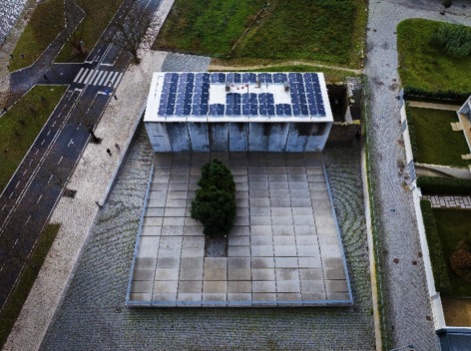
Credits The Great Bubble Barrier
The energy supply of the Bubble Barrier will be co-powered through solar panels installed by the University of Malta, another key partner of the MAELSTROM project. The University of Malta designed a tailored solar panel system – both inland and floating – connected to the Bubble Barrier compressor and the CMIA and Municipal Pool buildings in Vila do Conde. The system is expected to generate 57,300 kWh of renewable energy in the first year of operation, compensating for part of the electricity required by the Bubble Barrier from the electricity grid.
How do you see the support of the ENGIE Foundation and ENGIE Portugal ?
In order to tackle the problem of plastic pollution we need the collaboration of many stakeholders, from the private sector to the government.
We cannot implement Bubble Barrier projects without partners like the ENGIE Foundation and ENGIE Portugal, who support our mission of plastic-free rivers. We are extremely grateful for their operational and financial support in making Bubble Barrier Vila do Conde possible.
International Children's Rights Day
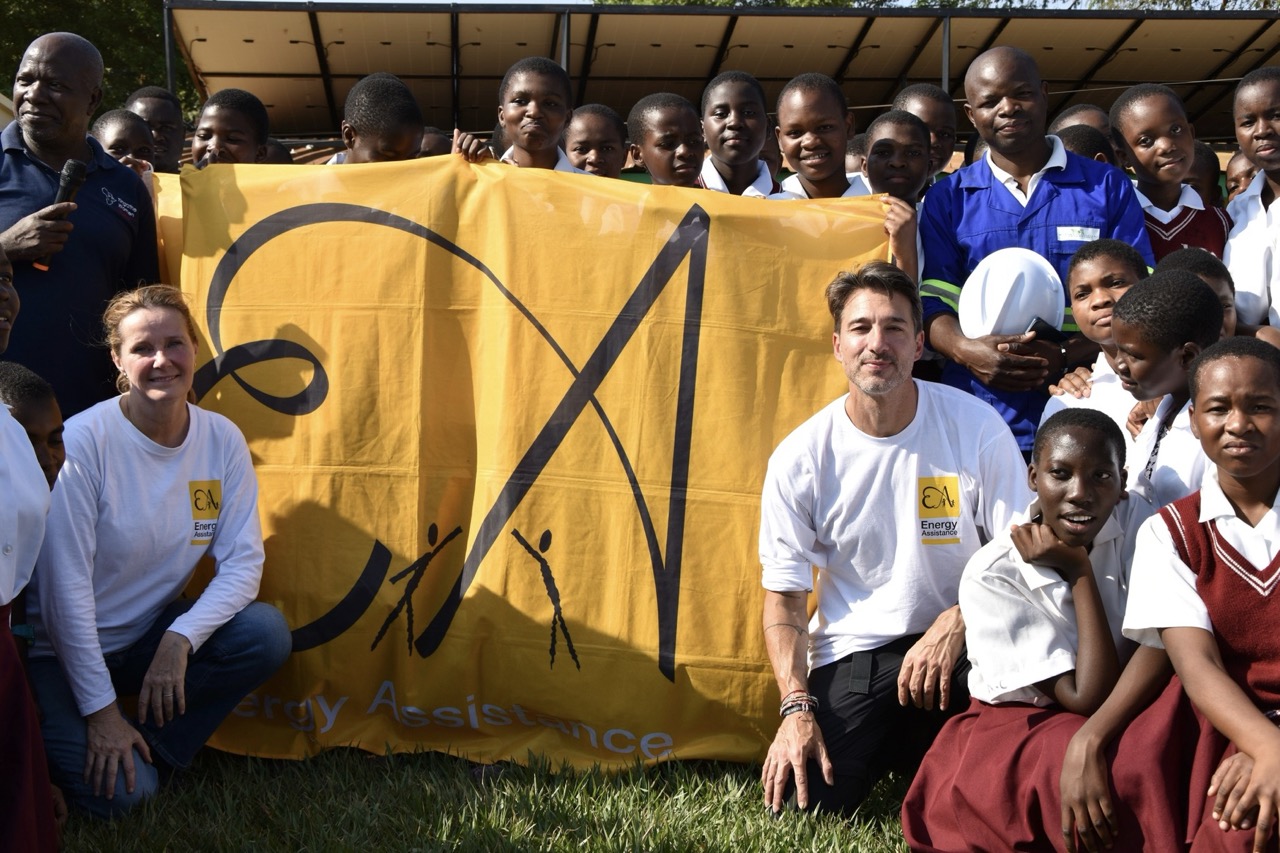
On November 20, 1989, the rights of every child in the world were recognized by the International Convention on the Rights of the Child (CRC), adopted by the UN General Assembly. This international text sets out four fundamental principles for children: the right to live, survive and develop; the best interests of the child; non-discrimination; and respect for the views of the child.
Since then, November 20 has been designated International Children’s Rights Day. On this day, we celebrate the projects and actions carried out to advance children’s rights. For children are both the most vulnerable and the future of our society.
Universal Children’s Day offers each and every one of us a unique opportunity to raise public awareness of children’s rights, to promote and highlight them, and to transform this date into concrete action in favor of children everywhere.
For 30 years, the ENGIE Foundation has been working to help the most vulnerable children by supporting projects that have an impact on their lives, via:
- Access to education, culture and health,
- Access to energy and essential goods, because without energy there can be no schools, hospitals, drinking water..,
- Integration, employment and the fight against poverty, to enable economic activity that promotes community development.
The ENGIE Foundation wishes to give the most vulnerable children the energy to learn and grow in a positive environment, and is convinced that children will build tomorrow’s world. Giving them the energy to act is vital for the future of the planet.
Mobilizing employees for children's education with Energy Assistance
Reinforcing the education of 600 girls at Likuni Girls' Secondary School, Malawi
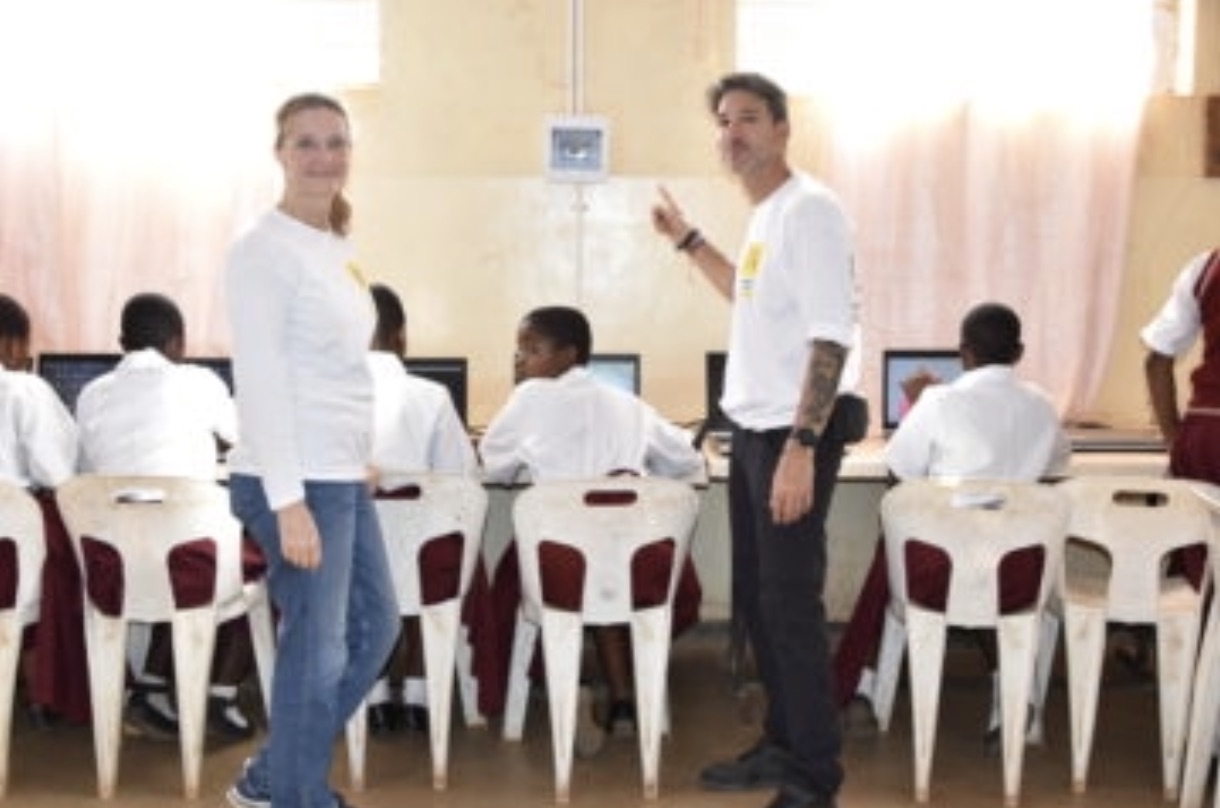
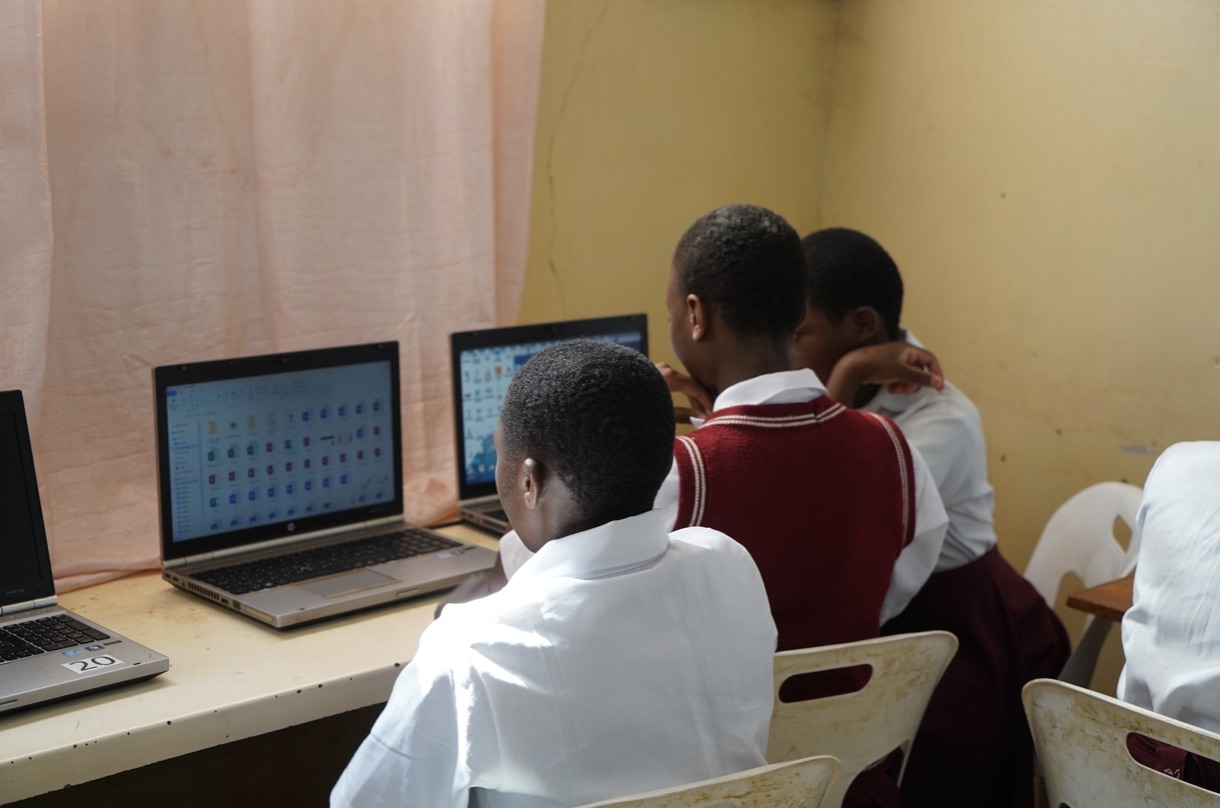
ENGIE volunteers from ENERGY ASSITANCE Belgium have helped improve the educational landscape for 600 girls at Likuni Girls’ Secondary School in Malawi, by installing solar panels and batteries.
Malawi faces frequent power cuts that disrupt the learning process. Solar power is a reliable source of energy that not only lights up classrooms, but also contributes to the well-being of our planet.
Lighting the way to education:
Likuni Secondary School for Girls, a boarding school near Lilongwe, caters for 600 girls. The solar system not only lights up the classrooms after dark (around 5 p.m. because of the latitude), but also powers 30 computers, providing access to modern educational tools. We firmly believe that every girl deserves a chance at a bright future, and that access to education is the key.
Although the school is connected to the local grid (ESCOM), persistent power cuts led to the installation of 22 photovoltaic panels and 4 lithium batteries as back-up. The panels were placed on the roof of the school building, and a restored technical room now houses the solar control equipment, electrical boxes and batteries. The solar system (nearly 10kWp with a storage capacity of 19.2kWh) ensures a continuous power supply to classrooms, the computer room and the administration block during blackouts.
Towards sustainability and ecological friendliness:
In addition to the classrooms and administration block, the dormitories, kitchens, etc. are still not connected. A feasibility study is underway to supply the kitchen with biogas. This would enable daily meals to be prepared without the need for electricity or firewood, and provide biofertilizer for the vegetable garden, thus offering an environmentally-friendly solution. The aim is to combat deforestation and improve the school’s self-sufficiency.
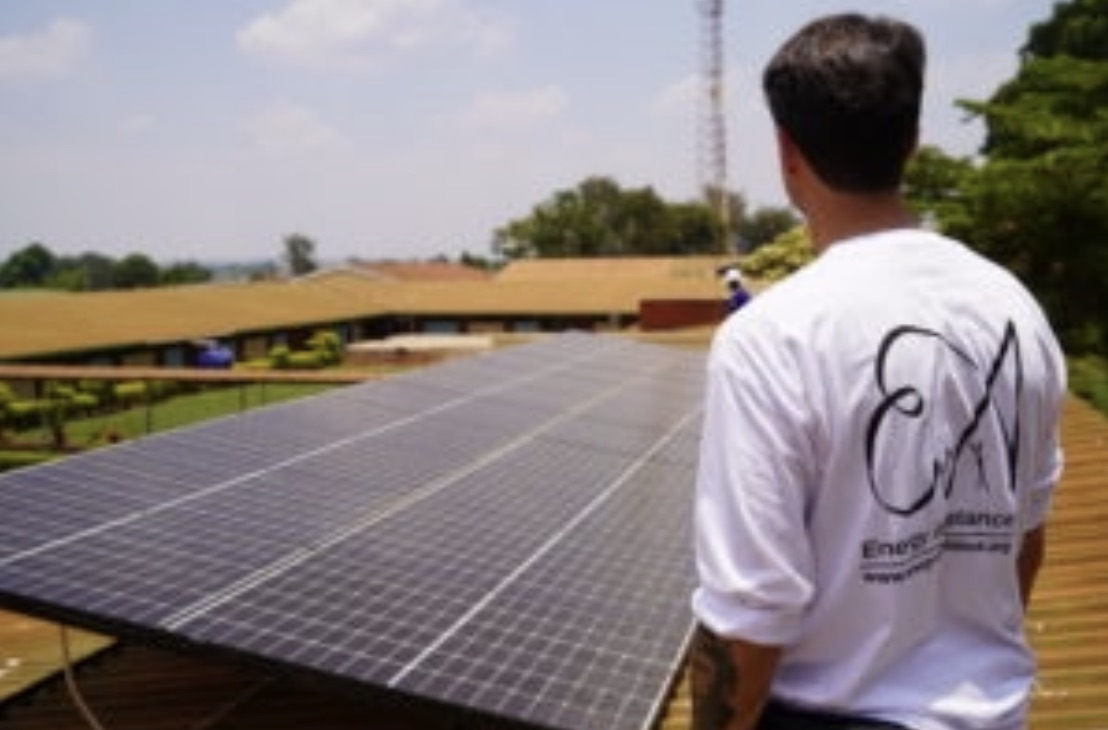

Promoting biodiversity for a sustainable future:
As part of its commitment to sustainable development, Likuni Girls’ Secondary School is committed to planting 800 indigenous trees. This planting aims to reforest areas of Lilongwe most affected by deforestation (mainly for firewood and charcoal) and to teach girls the benefits of having trees nearby. Trees planted along watercourses aim to reduce flooding during the rainy season, which is particularly dramatic given the floods that have hit Malawi in recent years.
Health education with “The Healthy School Program” in Brazil
The Healthy School program aims to improve the quality of life of children and communities through health and nutrition education. The Healthy School strategy is based on transforming children into agents of change, so that they can pass on educational messages to their families and communities.
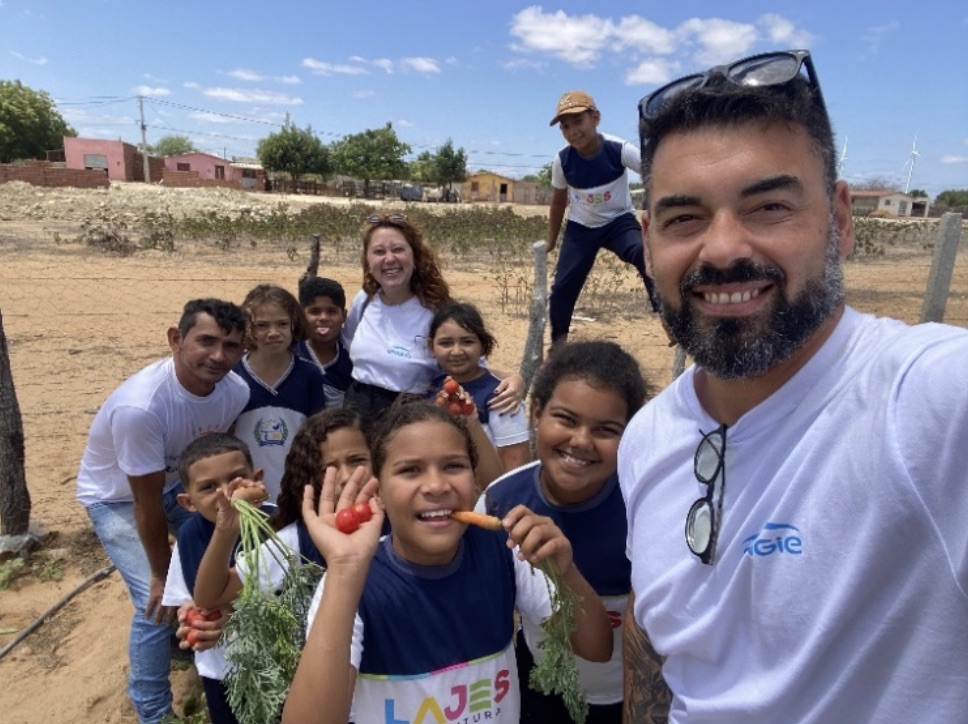
The main components of the program are as follows:
- Sustainability: establishing a solid foundation for the program through partnerships with local stakeholders; training local staff and including program themes in the schools’ political/educational curriculum
- Education: training of teachers, canteen staff and community health workers on program themes; monthly educational activities for children and communities; integration of themes into the school curriculum (cross-cutting themes) and effective changes in school communities.
- Health: monitoring of children’s health and treatment of iron-deficiency anemia.
- Monitoring and evaluation: initial and final evaluation (including knowledge and impact of actions).
The aim of the Healthy School program is to develop a sustainable culture of healthy lifestyles in schools and communities.
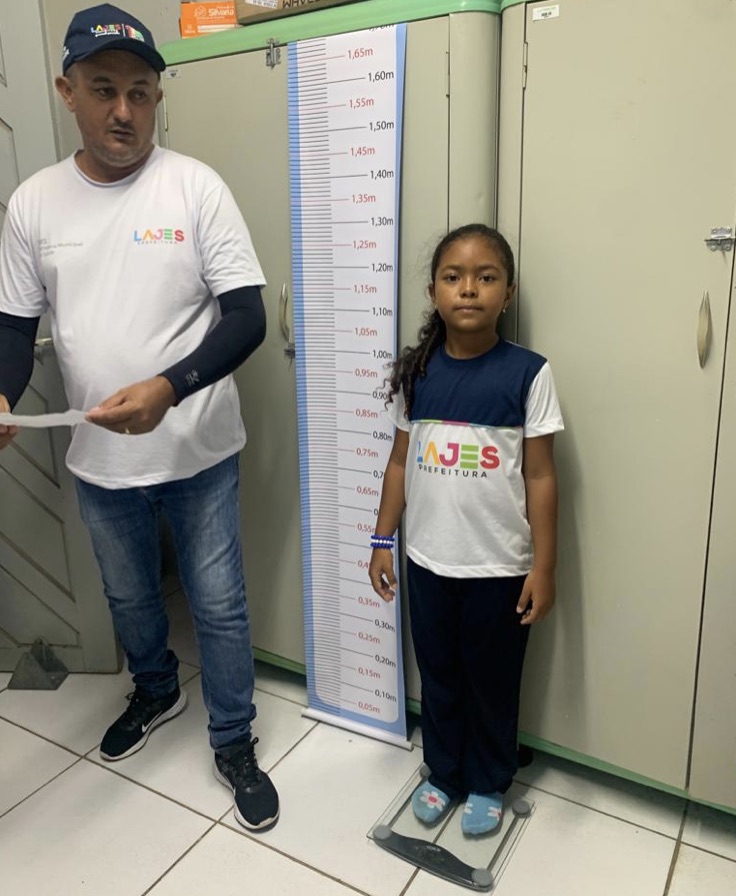
IMPACT: The program directly affects 1,334 children from 16 public schools in the municipalities of Lajes and Pedro Avelino, as well as 113 teachers, 25 cafeteria workers and 49 community health workers. Indirectly, the program reaches around 5,000 people in the community, including children, young people and the elderly.
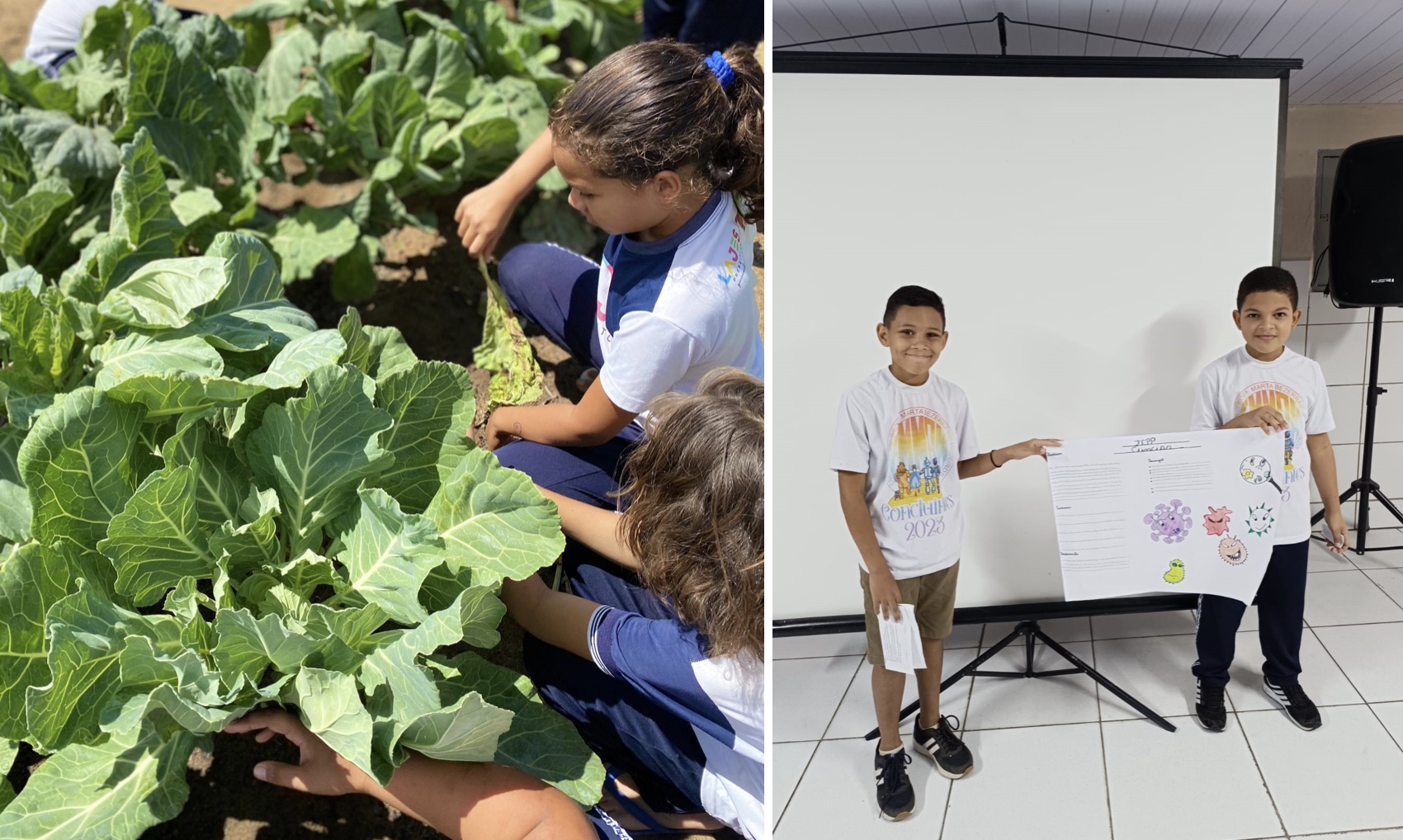
The program aims to meet several specific objectives:
- Determine the nutritional status of children participating in the program (including levels of anemia, overweight and underweight)
- Improve teachers’ and school staff’s knowledge of nutrition, healthy lifestyles and environmental education.
- Strengthen the school community so that the school becomes a model “healthy school”, giving priority to healthy habits and behaviors.
- Promote alternatives for drinking water, with training in the SODIS (“Solar Water Filtration”) method
- Promote the sustainability of the program and its actions, with ongoing training for the educators involved and the establishment of local partnerships.
Access to healthcare in INDIA with La Chaîne de l’Espoir

La Chaîne de l’Espoir, in partnership with the Indian NGO Taabar and with the support of the ENGIE foundation, has developed a mobile health clinic dedicated to the care of young girls and women in various districts of Jaipur.
The mobile clinic brings together a team of 7 people: a female doctor who knows the particular problems faced by young girls, a nurse, a driver, a counselor, a coordinator and two health educators.
Each district of Jaipur, depending on its population and the ethnic groups living there, presents more or less recurrent health problems. The clinic’s gynecologist believes that many problems are linked to misinformation and lack of knowledge among parents about the female reproductive system and the menstrual cycle. She also explains that these subjects are often taboo in most communities, and that sessions with young girls and sometimes their parents help to free up the floor for discussion.
IMPACT
Nearly 5,000 girls were seen for consultations between January and July 2023. Taabar estimates that by the end of the year, they could be more than 10,000.
Several types of psycho-social support sessions are organized:
- Individual sessions that enable girls to address certain issues in private.
- Group sessions, accompanied by a pre- and post-test to assess knowledge and the impact of the sessions.
Finally, referral is a tool that redirects beneficiaries to special medical attention in hospital institutions.
IMPACT: 2925 session beneficiaries
1860 participants in group sessions, 1245 participants in individual sessions and 40 referrals were done.
International Day of the Girl
Today’s girls will be tomorrow’s women.
October 11 is the International Day of the Girl, which focuses on the need to address the challenges faced by girls, and to promote girls’ empowerment and respect for their human rights.
Adolescent girls have the right to a safe, healthy life and to education, not only during their critical formative years, but also once they become women. If girls are supported through adolescence, they have the potential to change the world – as tomorrow’s workers, mothers, entrepreneurs, mentors, heads of households and political leaders. Investing in the potential of adolescent girls means defending their rights today and ensuring a fairer, more prosperous future. A future in which they will have an equal share with half of humanity in solving the crises of climate change, political conflict, economic growth, disease prevention and global sustainability.
Girls break down barriers posed by stereotypes and exclusion, particularly those related to children with disabilities and those living in marginalized communities. As entrepreneurs, innovators and initiators of global movements, girls are creating a relevant world for themselves and for future generations.
Gender equality and women’s empowerment are integral to all 17 goals. Only by guaranteeing the rights of women and girls across all the goals will we achieve justice and inclusion, economies that work for all, and the maintenance of our shared environment, now and for future generations.
The ENGIE Foundation is convinced that the role and future of girls, future women, are essential to help achieve the goals of Sustainable Development.
The ENGIE Foundation pays particular attention to projects that have an impact on the lives of young girls through :
- access to education and culture
- access to scientific careers
- challenging gender prejudice and promoting gender equality
- The ENGIE Foundation wants to give young girls a chance
For International Girls’ Day 2023, the ENGIE Foundation is highlighting girls’ education, particularly in sciences. Oriented by gender norms and stereotypes conveyed by textbooks, teachers and parents, girls are few and far between in scientific and technological fields. What’s more, the absence of female role models does not encourage them to pursue science-related studies.
According to UN Women, worldwide, women account for just 35% of STEM (Science, Technology, Engineering and Mathematics) graduates, and only 3% of ICT (Information and Communication Technology) graduates.
Girls’ access to science and technology is a priority for 2023-2025
Discover our commitments right by our partners’ side
Promoting diversity and girls' access to science with ENS Paris-Saclay
As part of its equal opportunities plan, ENS Paris-Saclay is involved in a number of programs designed to help young people (high school, middle school and high school students), particularly girls, enter higher education and research careers.
The ENGIE Foundation has made access to science a priority in its education program.
That’s why the ENGIE Foundation is supporting ENS Paris-Saclay for 2 school years in its science awareness programs for young people (especially girls), in order to :
- stimulate young people’s interest in science,
- boost the academic ambitions of young people from different socio-territorial backgrounds, and of girls,
- limit self-censorship.

On October 6, as part of the Fete de la Science 2023, ENS Paris-Saclay organized a Science Village for 700 young people.
Teacher-researchers, doctoral candidates and students welcomed 300 primary school pupils to numerous “Mini Researchers” workshops in all scientific disciplines, in the presence of Nathalie Carrasco, President of the School, and Anne PEYROCHE, Vice-President in charge of strategy and resources.
400 middle and high school students (around 15 classes) attended mini-conferences with Alain Aspect, ENS Paris-Saclay alumnus, Nobel Prize in Physics 2022, Emeritus Research Director at CNRS, affiliated professor at ENS Paris-Saclay, professor at Institut d’Optique Graduate School (IOGS) and École Polytechnique.
WIA Code program: Coding training for high school girls in Senegal with Women In Africa
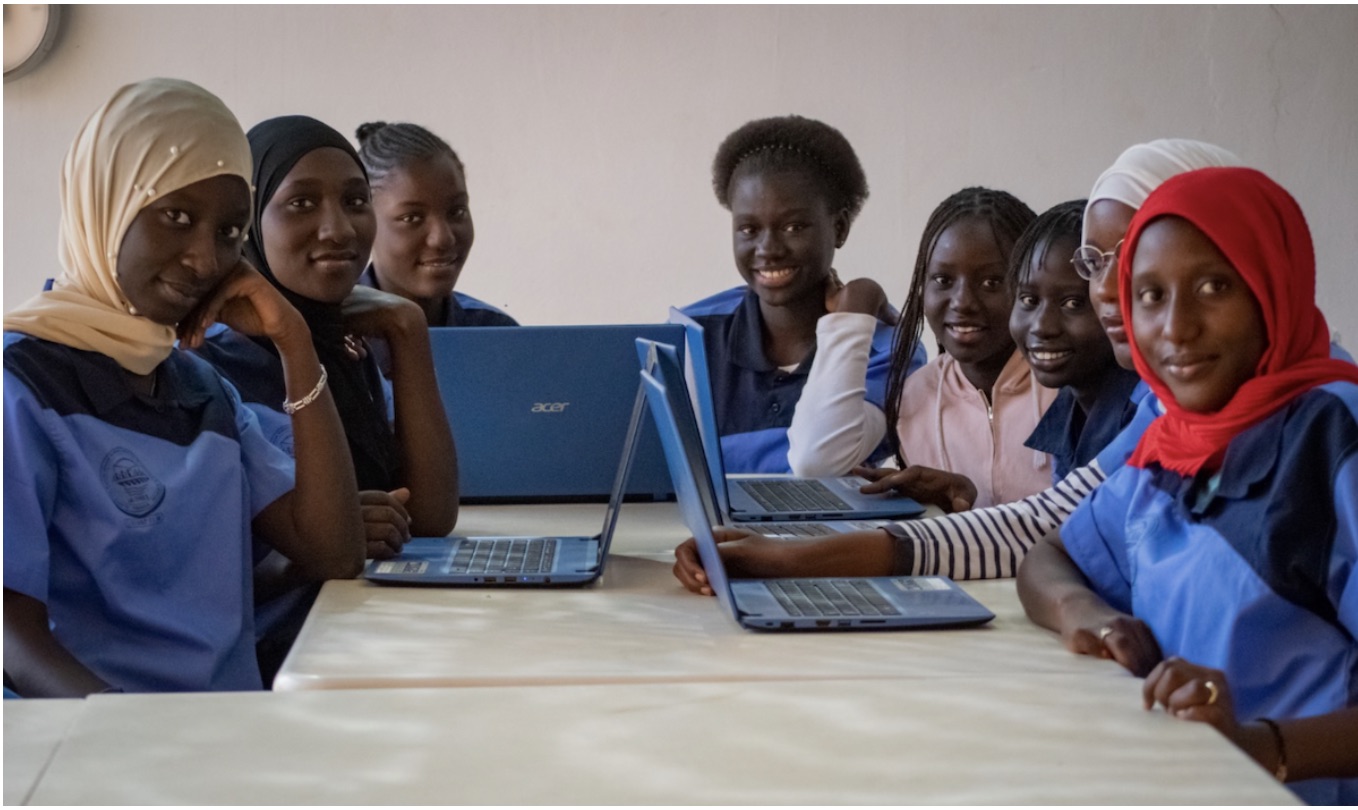
Women in Africa has set up a coding and science training program for young girls at the Lena Mama Diop High School in Ngaparou, Senegal.
The first phase, an introduction to coding, enables the girls to develop their computer skills and pave the way for new study prospects.
The second phase, dedicated to mentoring, enables them to cultivate soft skills such as confidence, leadership and public speaking.
A program like WIA Code is more than relevant, it enables high-school girls to develop new skills by introducing them to the use of IT tools and the principle of coding, thus adding other perspectives to their studies. These perspectives are complemented by the mentoring phase and the various workshops that revolve around professional integration and aim to raise awareness of the essential tools and skills that will accompany them throughout their academic and professional careers.
Impact: 76 high school girls took part in the program over two years
Testimonial from a young high school student
“You chose us from among so many others to teach us things that most of us were totally unaware of. Your program may be coming to an end, but it will have an impact throughout our lives. Through this program, you’ve taught us the basics and the depths of computing. Like, for example, how to create an application. But beyond that, you’ve awakened our team spirit, taught us to be patient, to communicate with others and to see things through to the end. We’re happy to say that you haven’t wasted your time. You’ve given us a clear picture of where we want to be in the future. We won’t give up and we’ll keep up the momentum. Many thanks to you!
Access to education is a right that is not guaranteed everywhere in the world: today, 118.5 million girls aged between 6 and 18 are still out of school for various reasons (conflict, war, prejudice, forced marriage, early pregnancy). And yet, the benefits of access to education have been proven to be numerous: poverty reduction, lower infant mortality rates, reduced violence against women and better HIV prevention.
Leadership for young schoolgirls in South Africa with Valued Citizen

For 20 years, the ENGIE Foundation has been a long-standing partner of the NGO Valued Citizens Initiative.
Valued Citizens is an association that aims to inspire individuals to become responsible citizens, determined to lead their lives by engaging with South Africa’s democracy and economy.
Since 2009, the ENGIE Foundation has been supporting the NGO’s iNSIRE program.
This iNSPIRE program aims to address the problem of gender inequality and poverty in communities by developing and challenging girls’ self-perception, promoting their emotional well-being and helping them to become young leaders in their communities, becoming the positive role models that young people expect.
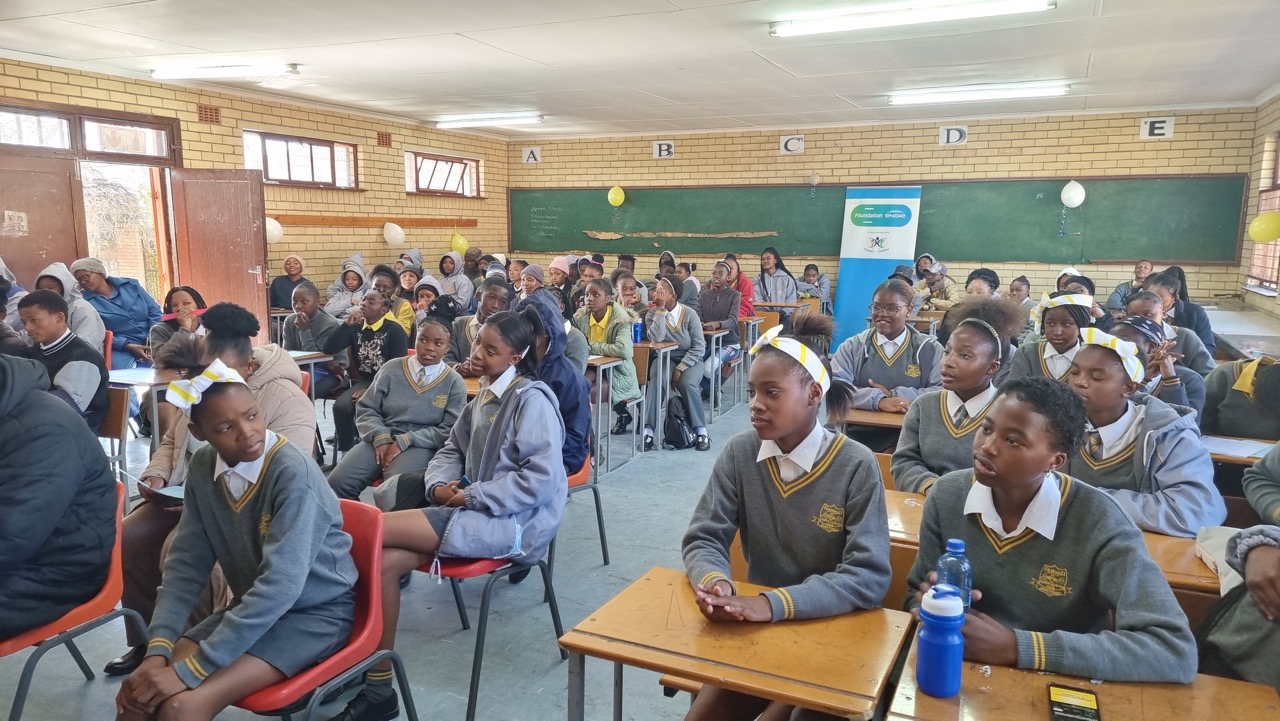
Impact 2023: 171 “Valued Citizens” teenagers took part in the leadership training courses and implemented their real-life, medium-scale citizenship project within their school community, with a direct impact on 3,197 students involved in carrying out their project and an indirect impact on 9,414 middle-school students.
With the NGO Toutes à l'école, focus on girls' education in Cambodia
The NGO Toutes à l’école, founded by journalist Tina Kieffer in 2005, aims to bring a high level of education to the most impoverished girls in Cambodia, so that they can become free, educated women.
Every year, 100 new girls aged 5 to 6 from the poorest families join the Happy Chandara campus in the suburbs of Phnom Penh, Cambodia, from kindergarten onwards. They will have the opportunity to pursue a high-level curriculum in kindergarten, primary school, junior high and high school, taught in Khmer, English and French.
The work continues with young baccalaureate students pursuing their studies, who are accommodated in the two Chandara Students’ Homes in Phnom Penh, where they build an independent adult life in a secure environment.
As early as 2016, sensing the scale of the climate crisis, the association integrated their first environmental protection courses into its educational program and created permaculture vegetable gardens on the Happy Chandara campus.
Today, the IPCC report is very clear: Cambodia is one of the country’s most vulnerable to global warming.
With this in mind, the association aims to make Happy Chandara the first entirely green pilot school in Cambodia.
The ENGIE Foundation supports the creation of the Green team
The Green Team includes trainee engineers from the “Grandes Ecoles” (Ecole Polytechnique, Ecole Centrale – Supélec Paris and Lyon), agronomists or from communications schools such as Celsa, all of whom are passionate about environmental issues, designing educational tools, running workshops with our students and prototyping projects (such as greening spaces and creating educational videos).
Trainees lead :
- workshops to raise awareness of the ecological transition for students and campus staff
- organic soap-making workshops for boarding schools and hygiene baskets for families
- paper recycling workshops for postcards sent three times a year to students’ godparents
- eco-committees with our students
- plastic collections around the school and alongside institutional partners in the capital Phnom Penh
To give students access to the best training, the association forges partnerships with universities and “Grandes Ecoles” in Europe and around the world.
The ENGIE Foundation is supporting a student, TOLA CHHORN, with a scholarship to the Ecole des Mines.
International Day for Biodiversity
Every year on May 22, the world celebrates the International Day for Biological Diversity. It is an opportunity to highlight the crucial importance of biodiversity for our planet and to raise awareness of the urgent need to preserve it.
This awareness, took place 30 years ago. The General Assembly of the United Nations adopted the text of the Convention on Biological Diversity, with the objective of preserving diversity, the sustainable use of its components and genetic resources, as well as the fair and equitable sharing of the benefits derived from them.
For this year 2023, the theme is: From agreement to action: build back biodiversity. This choice is in line with the adoption of the Kunming-Montreal Global Biodiversity Framework, an agreement signed in December 2022. A new dynamic that aims to halt and reverse the loss of nature through four global targets by 2025: healthy ecosystems and species, sustainable use of biodiversity, equitable benefit sharing, and implementation and financing.
Caring for life and our planet is what has driven the ENGIE Foundation for over 30 years. With 46% of its projects dedicated to access to renewable and sustainable energy and biodiversity in 2023, the ENGIE Foundation is committed to the environment year after year. The objective is to participate in ambitious and impactful projects and to take part in the collective effort of the Agenda 2030 through the achievement of the Sustainable Development Goals (SDGs)
With the ENGIE Foundation, act for the preservation of biodiversity in France and internationally :
- Protecting biodiversity and ecosystems
- Better understand and explore the richness of biodiversity
- Educate and raise awareness about the preservation of biodiversity
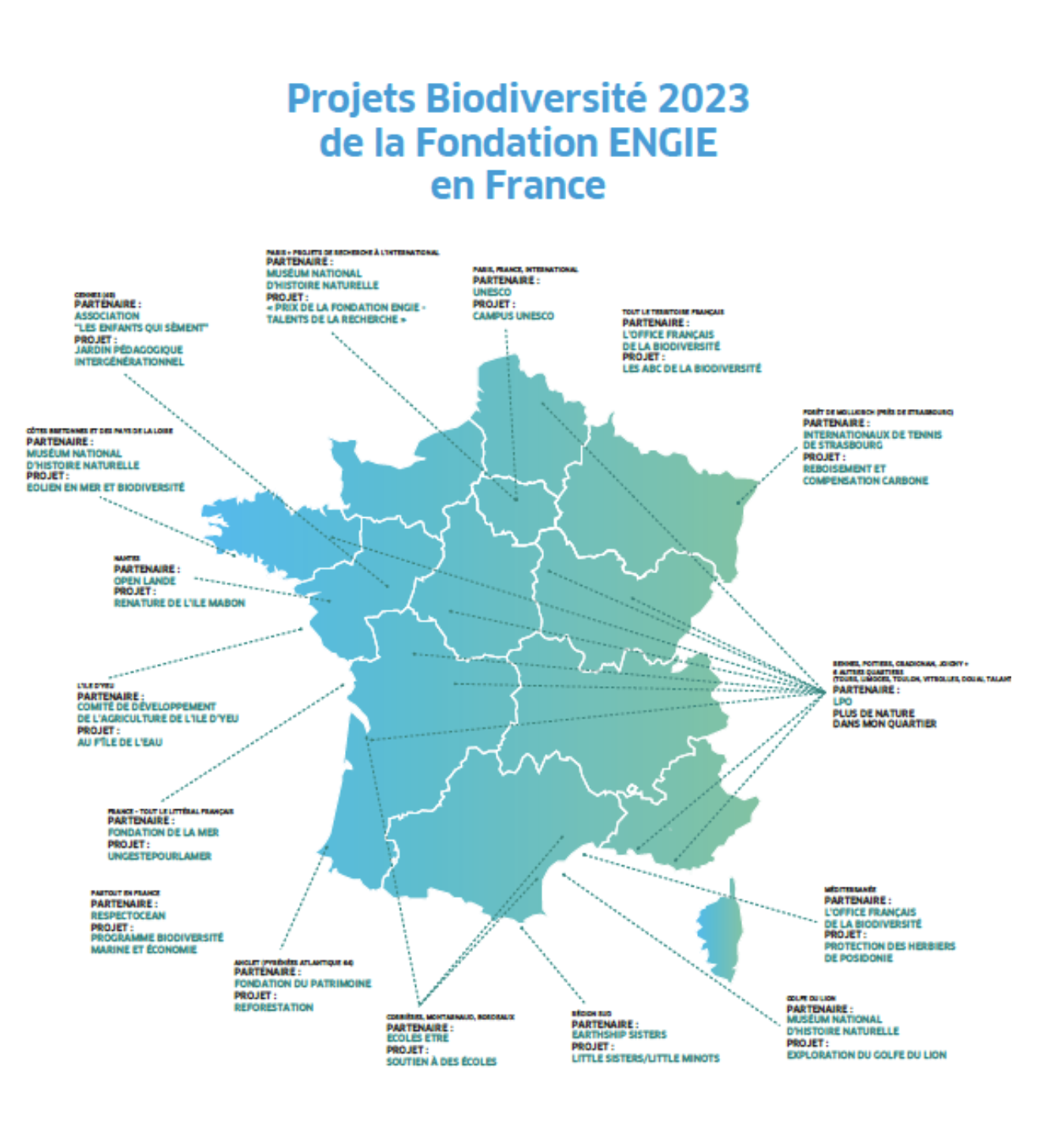
"Thirty years ago, our Corporate Foundation was created to carry out projects to restore major natural sites: to limit the impact of human activity on biodiversity, to preserve and restore it, and to unite employees around a great cause. This commitment to biodiversity has remained a strong marker of our action, and we wanted it to shape the 2020-2025 mandate of our Foundation. However, at the beginning of the 21st century, our outlook and requirements have changed. Fortunately, we have witnessed a global awareness of the challenges of global warming. A company like ours has made it part of its raison d'être to make a just transition to a low-carbon economy with positive impacts for the planet.
In the face of climate change, we must not forget Nature in the broadest sense, including biodiversity. We must not dissociate them, they are intrinsically linked. Global warming is the third major cause of biodiversity erosion. If we see the consequences of climate change, the damage on biodiversity is quieter, but just as dramatic. Some species have already disappeared. And it is the well-being and health of humanity that are at stake. Ecosystems have an essential role to play in our resilience. The role of the ocean is essential, as is the fight against land artificialisation and the preservation of wetlands.”
Jean-Pierre Clamadieu, Chairman of the Board of Directors of ENGIE, President of the ENGIE Foundation.
To act in favor of biodiversity, the ENGIE Foundation relies on experts: Meeting with 2 administrators committed to biodiversity
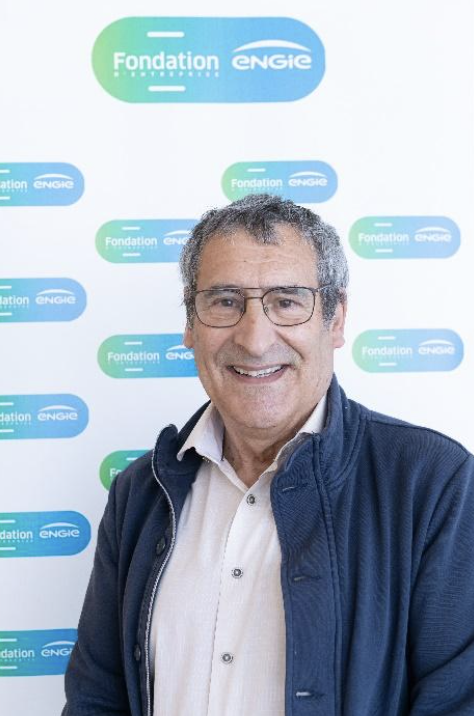
Gilles Bœuf, Professor emeritus at Soborne University, member of the Scientific Council of the French Office of Biodiversity (OFB), President of the Center of Study and Expertise on Biomimetism (CEEBIOS), administrator of the ENGIE Foundation.
“Let’s treat the issue of biodiversity on the same level as the issue of climate change. The urgency is just as strong and the two are linked.
Gilles Boeuf is a director of the ENGIE Foundation and a specialist in environmental physiology and biodiversity. Professor emeritus at Sorbonne University (Pierre and Marie Curie University, UPMC), assigned to the Oceanological Observatory of Banyuls after spending 20 years at the IFREMER in Brest (French Research Institute for Exploitation of the Sea). He was President of the National Museum of Natural History (MNHN), between 2009 and 2015.
He was also a visiting professor at the Collège de France for the academic year 2013- 2014, in the “Development of the Sea” Chair.
2014, on the Chair “Sustainable development, energy, environment and societies” and had then dedicated his teaching to the interactions between biodiversity and humanity. He was for two years scientific advisor to the cabinet of the Minister of the Environment, Energy and the Sea. Today he is member of the Scientific Council of the French Office of Biodiversity, visiting professor at AgroParisTech and president of the SCIC CEEBIOS, dedicated to biomimicry. In 2013, he was awarded the Albert I Great Medal of Monaco for his entire career, dedicated to the seas and the ocean. He is a Regional Councillor for Nouvelle-Aquitaine, in charge of the “One health” program.
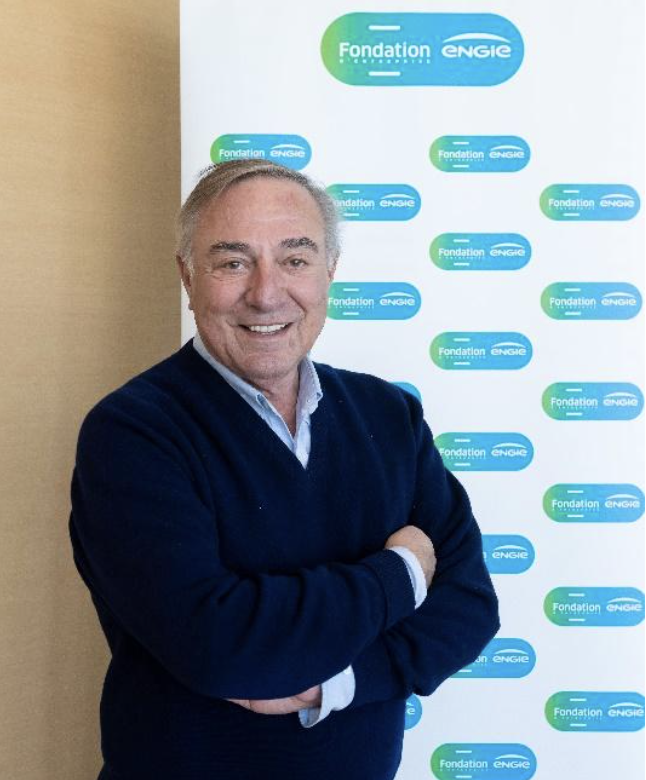
Allain Bourgain Dubourg, President of the League for the Protection of Birds and of the Strategic Orientation Council of the Foundation for Research on Biodiversity (FRB), Director of the ENGIE Foundation.
A pioneer in the field of environmental commitment, for more than 30 years Allain Bougrain Dubourg has presented animal-related programs on television and radio, notably on France Télévision, France Inter and RTL. Producer and director of numerous animal documentaries, he has just published a “Dictionnaire amoureux des oiseaux”. An inspiring figure, he has contributed to making ecology a mainstream issue. As a director of the ENGIE Corporate Foundation, he participates in the choice of projects carried.
The commitments of the ENGIE Foundation
Protecting biodiversity and ecosystems
With the GoodPlanet Foundation, development of sustainable beekeeping in Morocco

The ENGIE Foundation supports the GoodPlanet Foundation in the development of 10 beekeepers’ cooperatives in the Mesguina forest in Morocco to enable producers to develop their beekeeping activity in a profitable and sustainable way, as part of its commitment to biodiversity and climate.
Objectives: to support 95 beekeepers from 10 cooperatives and to raise awareness among 100 students from 9 rural schools about the preservation of bees.
With Friendship, mangroves restauration in Bangladesh

For more than 10 years, the ENGIE Foundation has been working alongside the NGO Friendship to build community capacities, encourage major contributions from women, facilitate access to solar energy, training and biodiversity protection. To combat the effects of global warming and provide communities with the means to develop, Friendship is developing mangrove restoration with the support of the ENGIE Foundation.
One of the notable assets of Bangladesh is the world’s largest mangrove forest, the Sundarbans, a UNESCO World Heritage Site. Unique and diversified coastal ecosystems, mangroves are a formidable tool in climate change mitigation due to their high CO2 absorption capacity.
However, many mangrove reforestation projects in Bangladesh are not sustainable because they consist of non-resilient monocultures, are not properly managed during the growth phase, are sometimes planted with species not adapted to the area, or do not take socio-economic factors into account.
The 14 hectares plantation project
The project supported by ENGIE Foundation is carried out in 3 areas located in 3 villages of Satkhira district (land is a scarce commodity in Bangladesh and it is difficult to have land in one piece available for reforestation).
The first two areas (30,000 trees) were planted in October 2022 by local communities under the supervision of Friendship and local forestry experts. The third (12,000 trees) is scheduled for May 2023. In total, nearly 2,000 meters of dikes will be protected against flooding thanks to this project, knowing that the damage caused by salt water can persist for a very long time (a flooded soil becomes unfit for cultivation for years, just as a breeding pond invaded by salt water can no longer be used).
Six community groups of 30 people received capacity building training (prior to planting) in seeds, nurseries and planting; they also each participated in the first follow-up meetings.
In total, 240 participants will be trained in the three zones, which corresponds to approximately 1,200 to 1,440 direct beneficiaries (family members). Indirect beneficiaries will be much more numerous. They are all the villagers, farmers, fishermen who will see their houses, their fields, their ponds, protected from flooding and salinization.
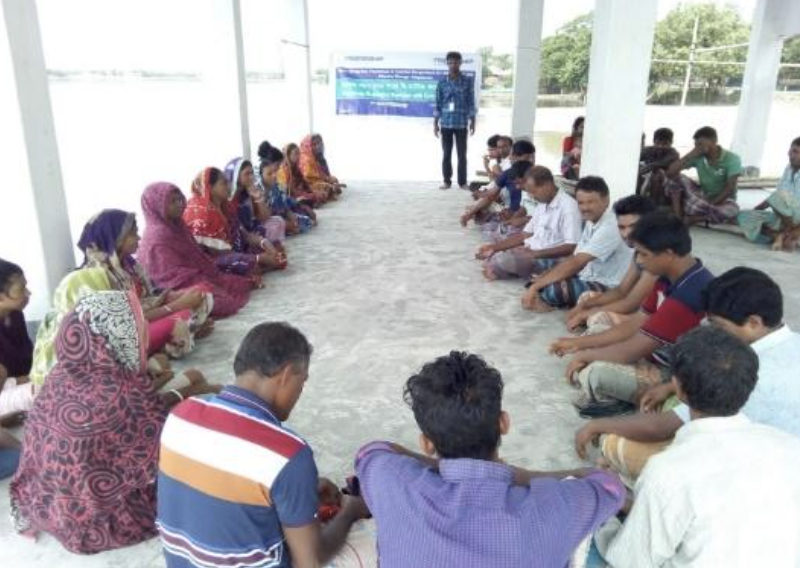
Better understand and explore the richness of biodiversity
With the French Office of Biodiversity, the ACB of Biodiversity
Raising awareness among the general public and public players about the issue of biodiversity in the heart of the Territories is one of the priorities of the ENGIE Foundation.
Since 2017, the French Office of Biodiversity (OFB) launches each year a call for projects in order to financially support the municipalities and the inter-municipal structures in the realization of their Atlas of the Communal Biodiversity (ABC In french).
An ACB is an approach that allows a municipality or an inter-municipal structure to know, preserve and enhance its natural heritage. It is an inventory of environments and species present on a given territory.
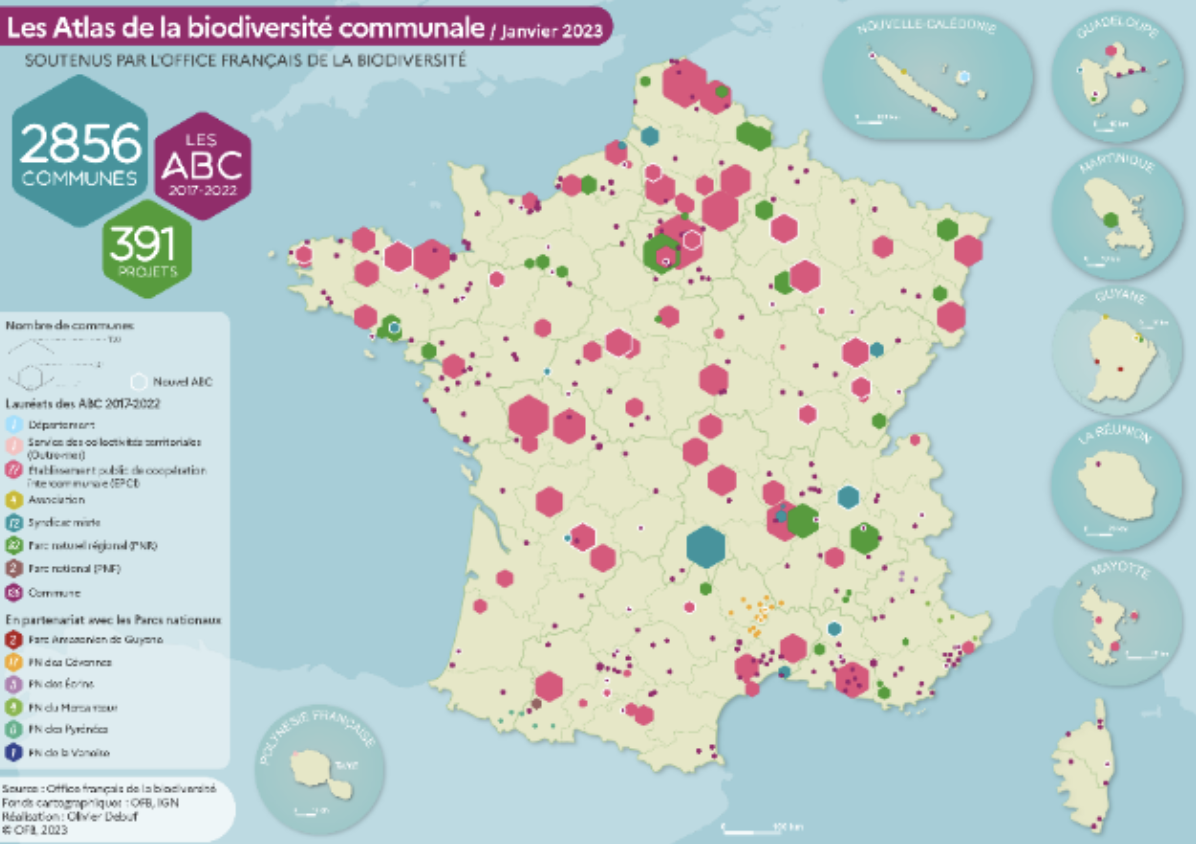
Since 2017 nearly 3,000 municipalities have been involved in an ACB and 400 projects have been carried out in metropolitan France and the French overseas territories.
Call for projects 2023 and support from the Engie Foundation
For the 2023 call for projects, the territories had until March 22 to submit their projects to the OFB. The winners will be announced in June.
To support this dynamic, the ENGIE Foundation has chosen to support the development and promotion of the program, to ensure its sustainability and to accompany the increase in quality of the projects, in particular through
– Thematic tools dedicated to local authorities for the realization of their ACB
– Collecting feedback from communities that have already carried out an ACB
– Networking between local authorities that have already carried out a ACB, those that have completed it and those that would like to start one, as part of a process of dissemination of good practices
– Actions in order to mobilize the circle of historical ACB partners and to attract the interest of new partners
– Finally, the organization of an annual trophy where the finalized ACBs that stand out will be rewarded, particularly from the point of view of knowledge (involvement of scientific colleges), citizen mobilization, and their long-term inclusion (federation of external partners).
Educating and raising awareness about the preservation of biodiversity
With the Ligue de Protection des Oiseaux LPO, the Plus de Nature dans mon quartier program
Environmental education and awareness-raising are strong drivers of the ENGIE Foundation’s action.
This citizen mobilization program combines biodiversity and social cohesion in the heart of the territories. It is organized around actions of awareness, preservation and integration of the biodiversity in the priority districts of the city policy. The LPO is leading the implementation of the program in collaboration with local actors, such as residents, schools, communities, social landlords and neighborhood associations.
The program is currently being deployed in a dozen pilot neighborhoods with a view to a national rollout in 2024.
In 2022, the program has raised awareness among 64 primary and secondary school classes in the 9 pilot districts, i.e. about 1,600 students and, through them, their families. Concrete actions (planting of tree strata, construction of nesting boxes, etc.) have been carried out each time.
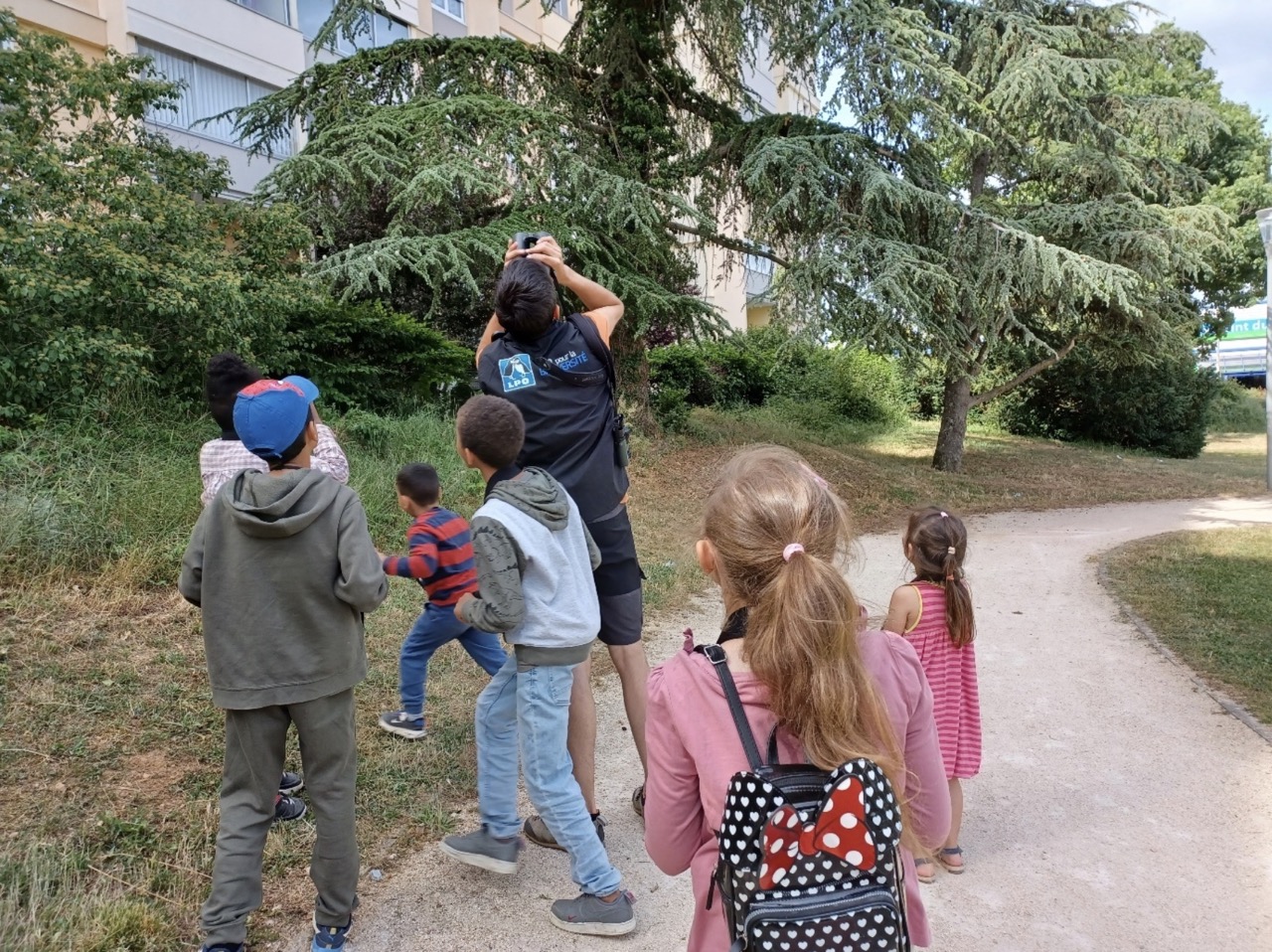
On the occasion of Biodiversity Day, meet two committed administrators for biodiversity
Meeting with 2 administrators committed to biodiversity

Gilles Bœuf, Professor emeritus at Soborne University, member of the Scientific Council of the French Office of Biodiversity (OFB), President of the Center of Study and Expertise on Biomimetism (CEEBIOS), administrator of the ENGIE Foundation.
“Let’s treat the issue of biodiversity on the same level as the issue of climate change. The urgency is just as strong and the two are linked.”
Gilles Boeuf is a director of the ENGIE Foundation and a specialist in environmental physiology and biodiversity. Professor emeritus at Sorbonne University (Pierre and Marie Curie University, UPMC), assigned to the Oceanological Observatory of Banyuls after spending 20 years at the IFREMER.
IFREMER in Brest (French Research Institute for Exploitation of the Sea). He was President of the National Museum of Natural History (MNHN), between 2009 and 2015. He was also a visiting professor at the Collège de France for the academic year 2013- 2014, in the “Development of the Sea” Chair.
2014, on the Chair “Sustainable development, energy, environment and societies” and had then dedicated his teaching to the interactions between biodiversity and humanity. He was for two years scientific advisor to the cabinet of the Minister of the Environment, Energy and the Sea. Today he is member of the Scientific Council of the French Office of Biodiversity, visiting professor at AgroParisTech and president of the SCIC CEEBIOS, dedicated to biomimicry. In 2013, he was awarded the Albert I Great Medal of Monaco for his entire career, dedicated to the seas and the ocean. He is a Regional Councillor for Nouvelle-Aquitaine, in charge of the “One health” program.
✷ What is your view of biodiversity?
An alarmed and alarmist view….The beginning of the 21st century is marked by a collapse in the number of individuals living in wild natural populations. This is a major scientific fact. Let’s take an example: in 18 years, we have lost 30% of birds in some agricultural areas.
However, today, the debates and the attention of the general public are focused on the climate.
Everyone recognizes that climate change affects living organisms. We forget the opposite: the living that goes away affects, in return, the climate. Overfishing reduces the ocean’s capacity to store CO2. Even though the oceans store about 30% of the carbon that we emit in excess. Climate and life: same fight! This is the mindset we need to have.
✷ What reasons explain the collapse of biodiversity and what are the threats?
The pure and simple destruction of ecosystems is the first threat to living things. It is responsible for two-thirds of the erosion of biodiversity. This is what we call the artificialization of soils, urbanization or the destruction of the coastline.
The second threat is contamination and pollution, in which agriculture has its share of responsibility. We have killed half the soil on this planet. We have grown to 8 billion human beings in the last few weeks. How can we feed this population with dead soil? It is impossible. We have to put some life back into it.
Third threat: the dissemination of species is a threat to life. Many species are transported. At the marine level, the hulls and ballasts of ships carry species across all the seas. Or they have been voluntarily introduced for fishing and colonize
the waterways. Catfish originating from Eastern Europe eat for example small salmon, shad and sturgeon.
Overexploitation is the fourth threat to biodiversity. The example of tropical forests is typical. As far as we know, they contain more than half of the known living species on Earth. And they are disappearing at about the speed of the surface of Great Britain every year. These large biodiversity basins can be counted on the fingers of one hand. There is the Congo Basin in Africa, the Amazon and the large islands of Papua New Guinea and Borneo. Overexploitation also concerns marine fisheries: humans take more than nature is capable of renewing. This is one of the properties of living beings, being renewable. But the current tragedy is that we are exceeding the thresholds of natural renewability of the Earth. We must fish, yes, but overfishing is stupid. With aquaculture, this represents a little more than 200 million tons per year, in spite of the fact that the stocks are more and more pressed. Illegal fishing is massively practiced.
Fifth threat: the much too rapid evolution of the climate. I don’t put climate as the primary cause of the collapse of life. But it could become important. … Bacteria, viruses, fungi, plants, animals… There is a general migration northwards in the northern hemisphere,
and southward in the southern hemisphere. This is related to the temperature of the water mass, the air temperature but also to the lack of water. The tiger mosquito has spread northward to 22 departments in France this year, causing an increase in dengue cases.
✷ What measures to take?
Europe is rather more advanced than the rest of the world on environmental issues.
Policies are not new: there is the Water Framework Directive, the Birds Directive, all the Natura 2000 projects… but, it is sometimes timid, as on pesticides. We need to move a little more and think about externalities. Pesticides have consequences on biodiversity and we have never consumed so much of them. The problem is also to find governance. International governance on these subjects is complex to implement.
✷ What do you expect from the actions led by the ENGIE Foundation?
The ENGIE Foundation is already very active on climate and biodiversity issues. We have had the opportunity to analyze various projects in recent years and we must continue. Today, these questions are essential for the well-being and the future of our fellow citizens and it is of course the role of our Foundation to contribute to them on solid scientific bases. The means allocated must be consistent and well targeted. The relationships established with the French Office of Biodiversity and the National Museum of Natural History are essential.

Allain Bourgain Dubourg, President of the League for the Protection of Birds and of the Strategic Orientation Council of the Foundation for Research on Biodiversity (FRB), Director of the ENGIE Foundation.
A pioneer in the field of environmental commitment, for more than 30 years Allain Bougrain Dubourg has presented animal-related programs on television and radio, notably on France Télévision, France Inter and RTL. Producer and director of numerous animal documentaries, he has just published a “Dictionnaire amoureux des oiseaux”. An inspiring figure, he has contributed to making ecology a mainstream issue. As a director of the ENGIE Corporate Foundation, he participates in the choice of projects carried
✷ You call for greater awareness of living things and a necessary change in human behavior.
The recent appeal by the “15,000 Scientists for the Planet” pointed to two obvious causes that explain the decline of living things: overpopulation on a planet with limited resources and intensive agriculture.
In both cases, we note that the idea of respect for life remains secondary, even inappropriate, in relation to productivist objectives. We must end this and consider that our dominant position on earth should not exonerate us from the respect we owe to other species. I would even say that our status obliges us to be compassionate. We cannot add unnecessary suffering to the need to kill! At the beginning of the 21st century, an awareness seems to be emerging but the retrograde lobbyings keep a power of resistance which postpones the deadline for change. The latter will be done step by step, sector by sector, under pressure from public opinion. The field of consumption can be a determining factor in this process, which is why we must fight for true traceability including animal welfare.
Basically, each citizen has the power to change… To quote Pascal: “the intuition of the heart leads to reason”.
✷ What do you expect from the actions of a Foundation, like the ENGIE Foundation?
First of all, the Foundation’s support for a project is a recognition of its value and of the actors who carry it. It obviously allows to develop the ambition of the action thanks to the granted budgets. Finally, it creates a link between the goodwill that animates the company. I am particularly sensitive to the ENGIE Foundation’s investment in the preservation of biodiversity, which suffers from a lack of attention compared to the climate issue. The education sector on this theme seems to me a priority.






